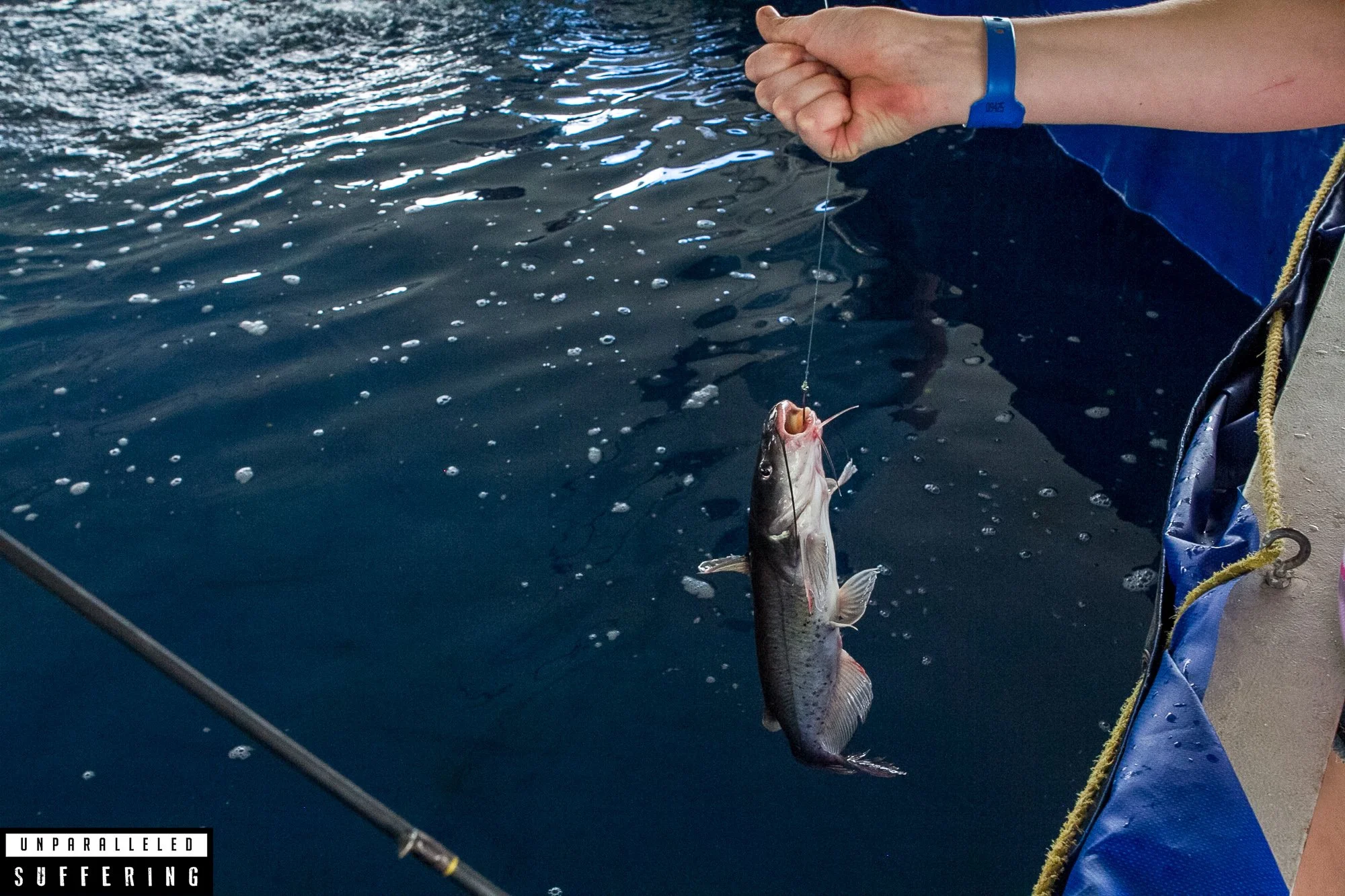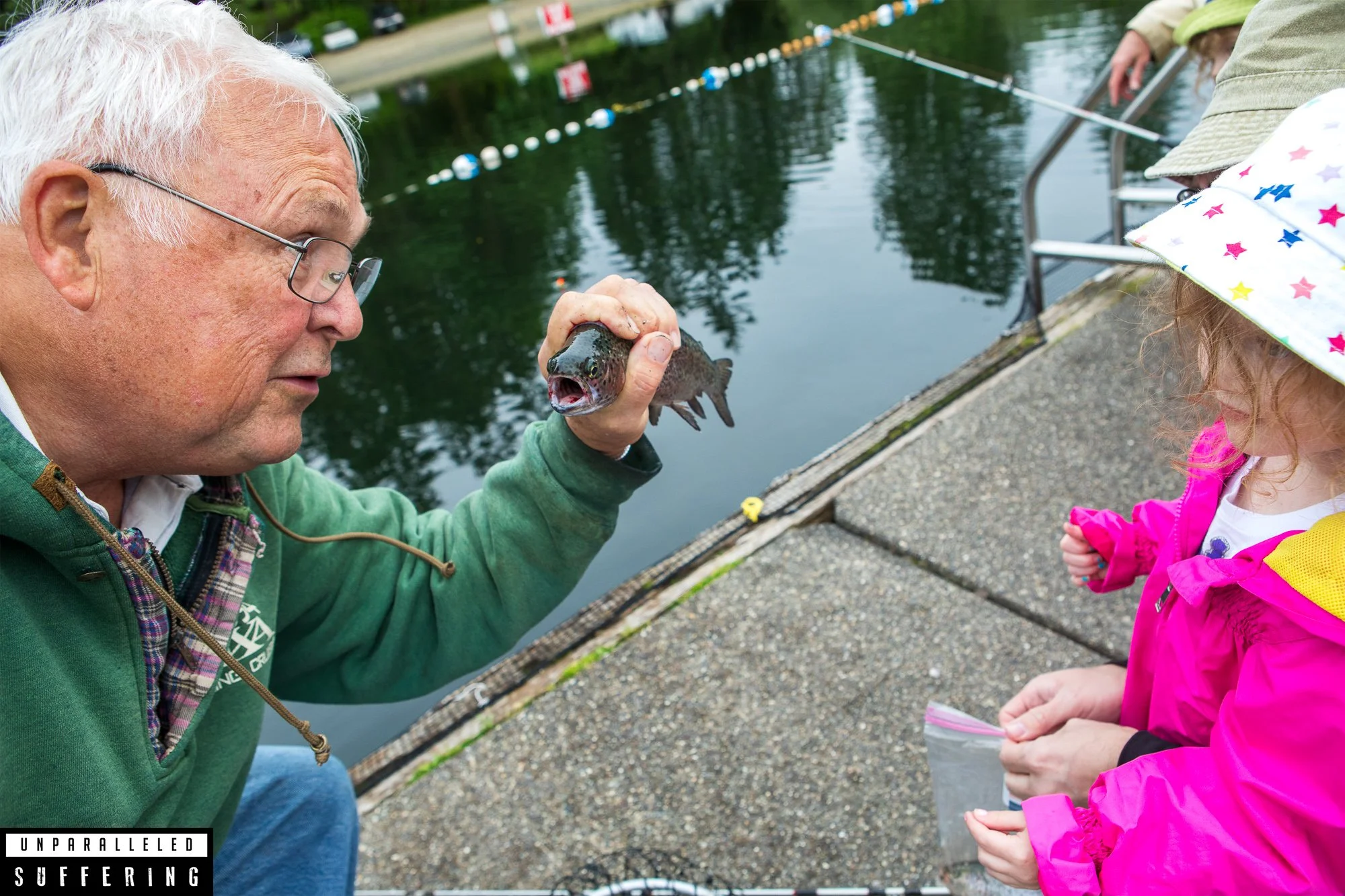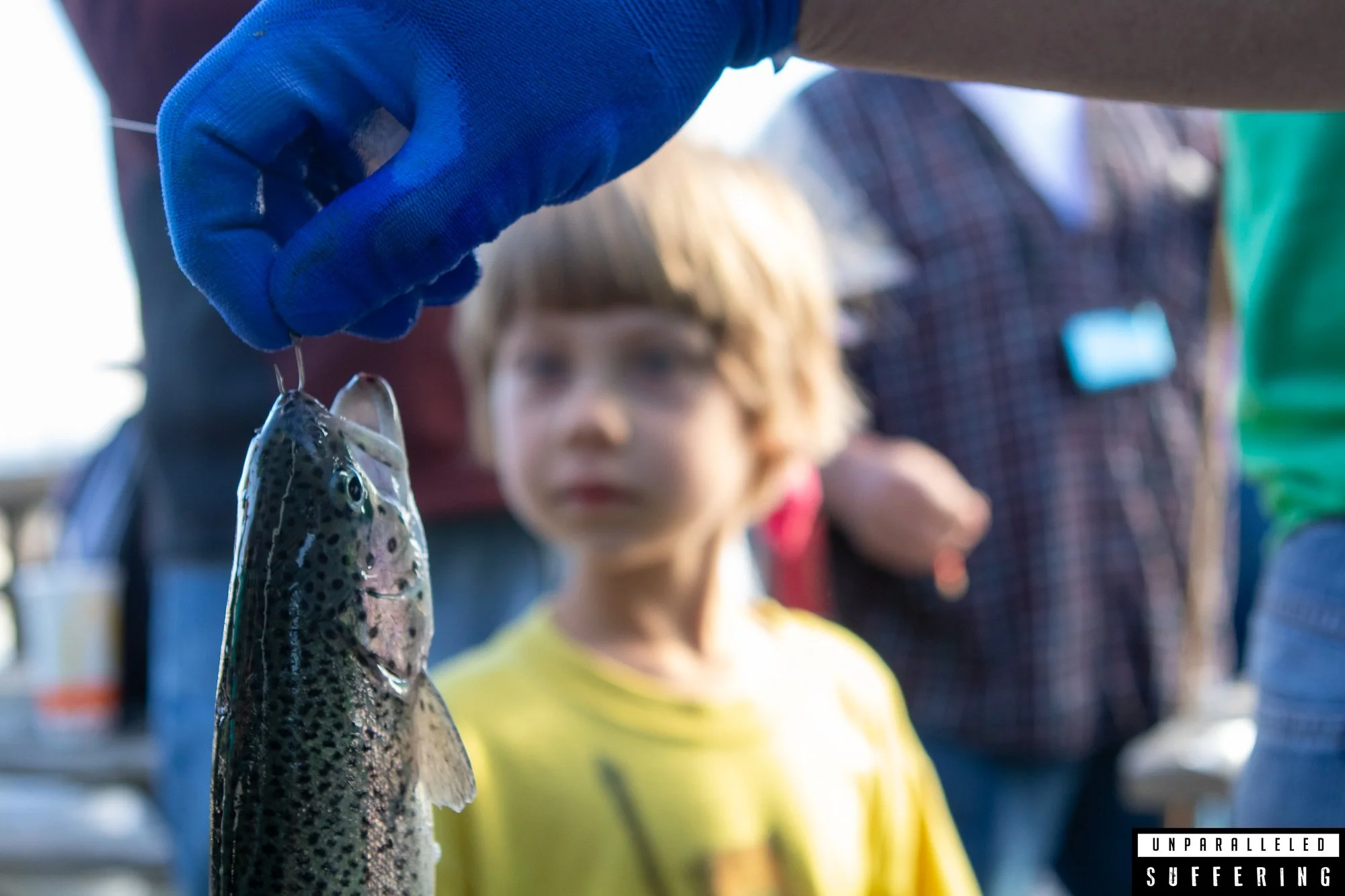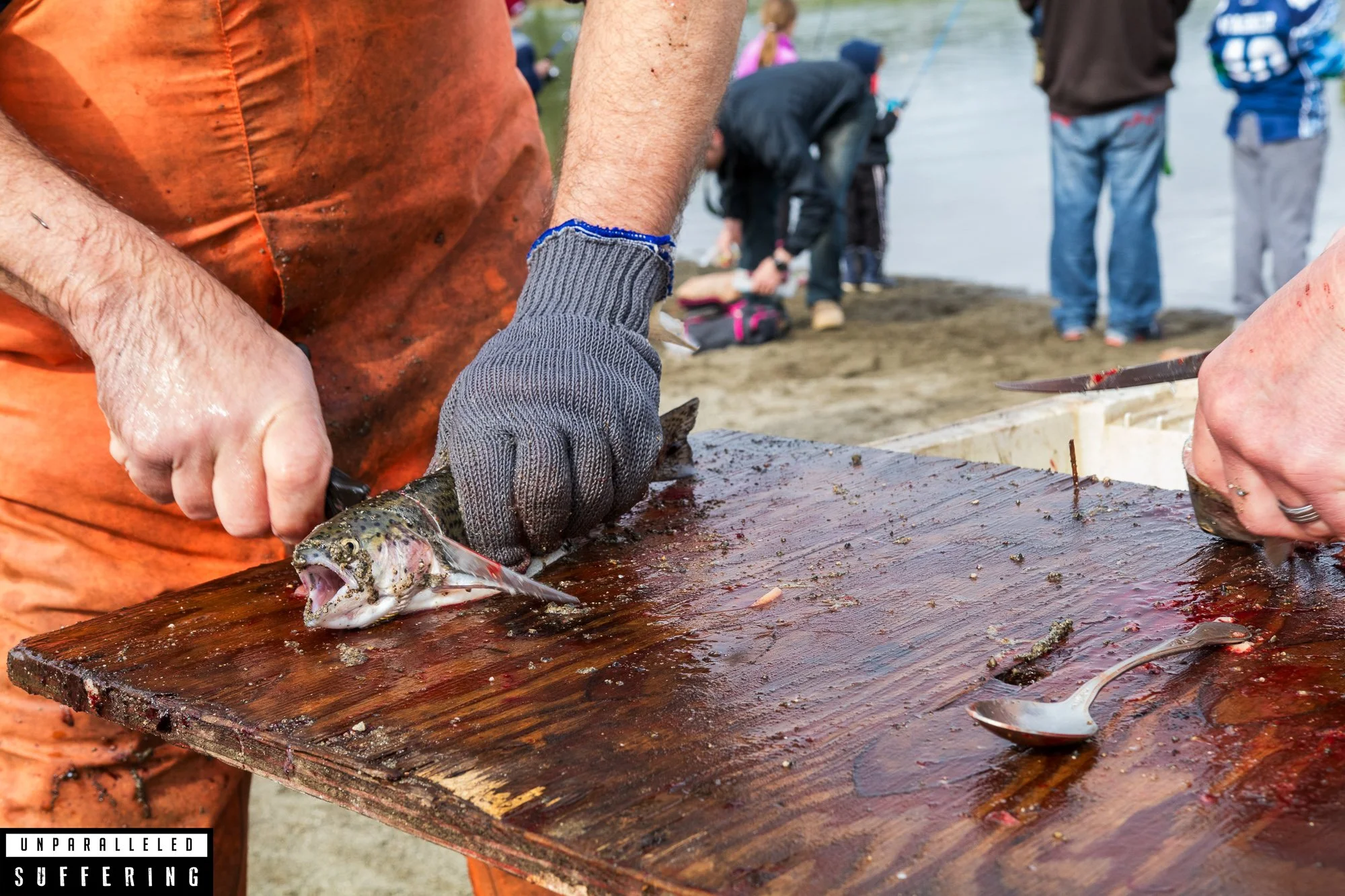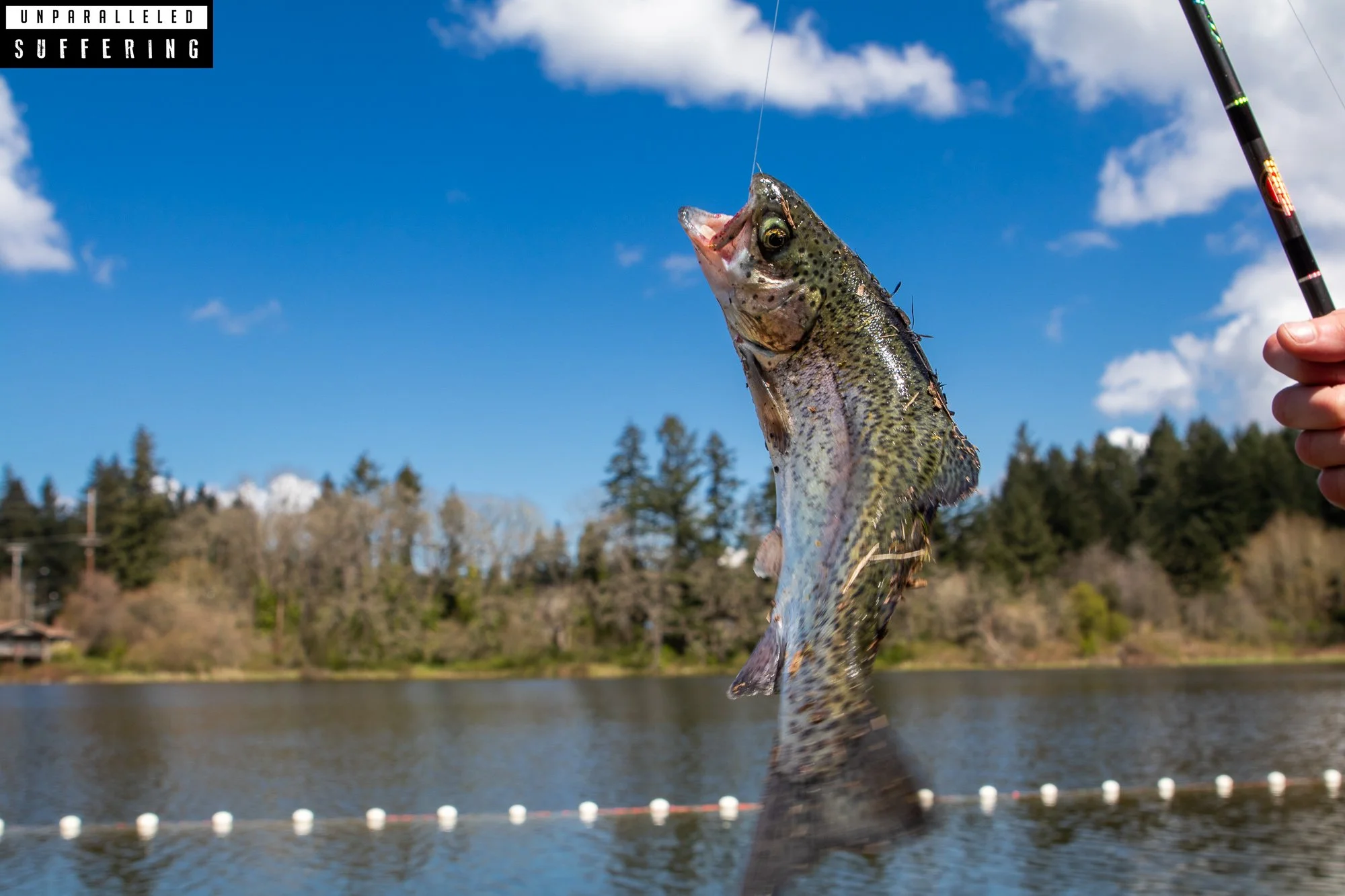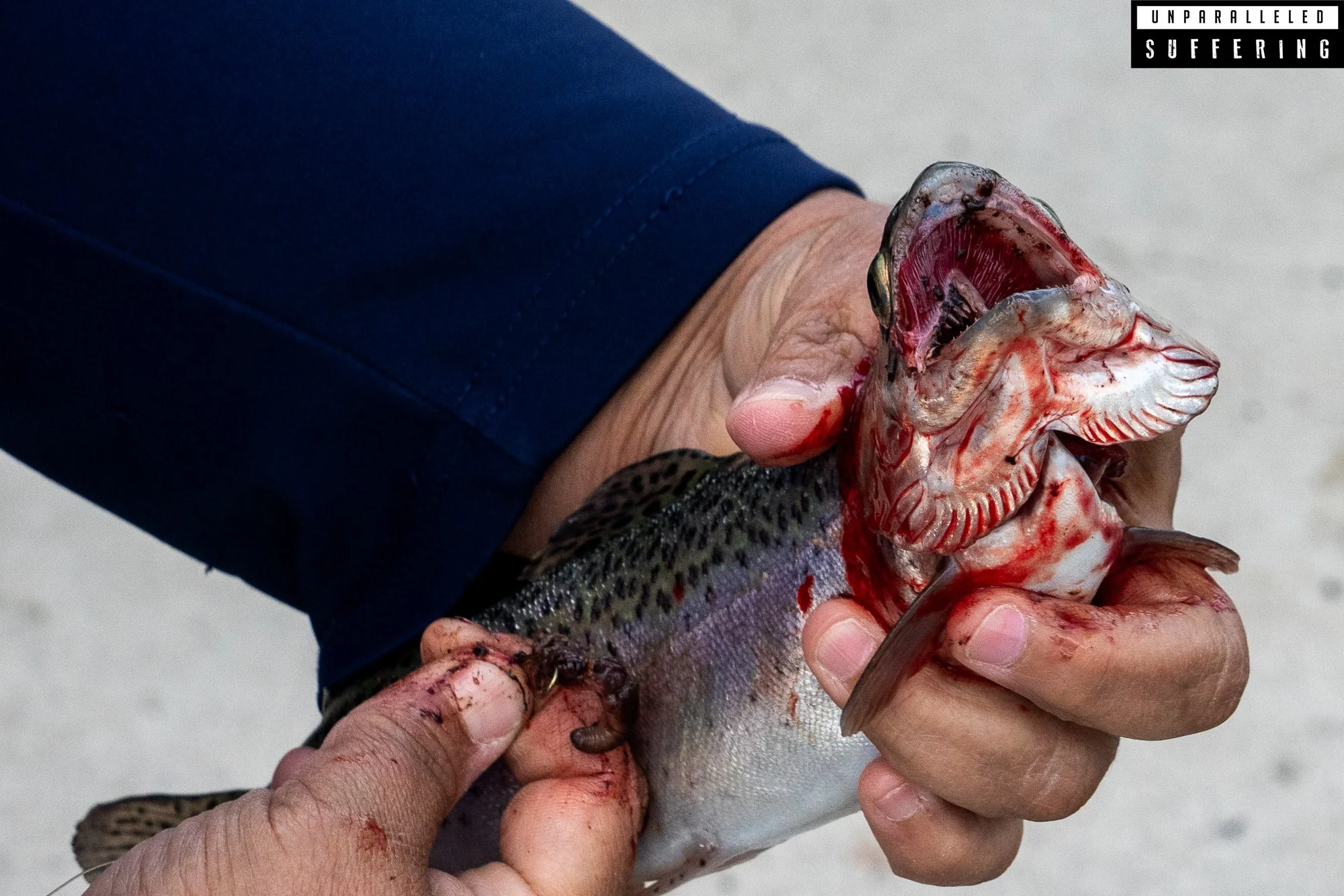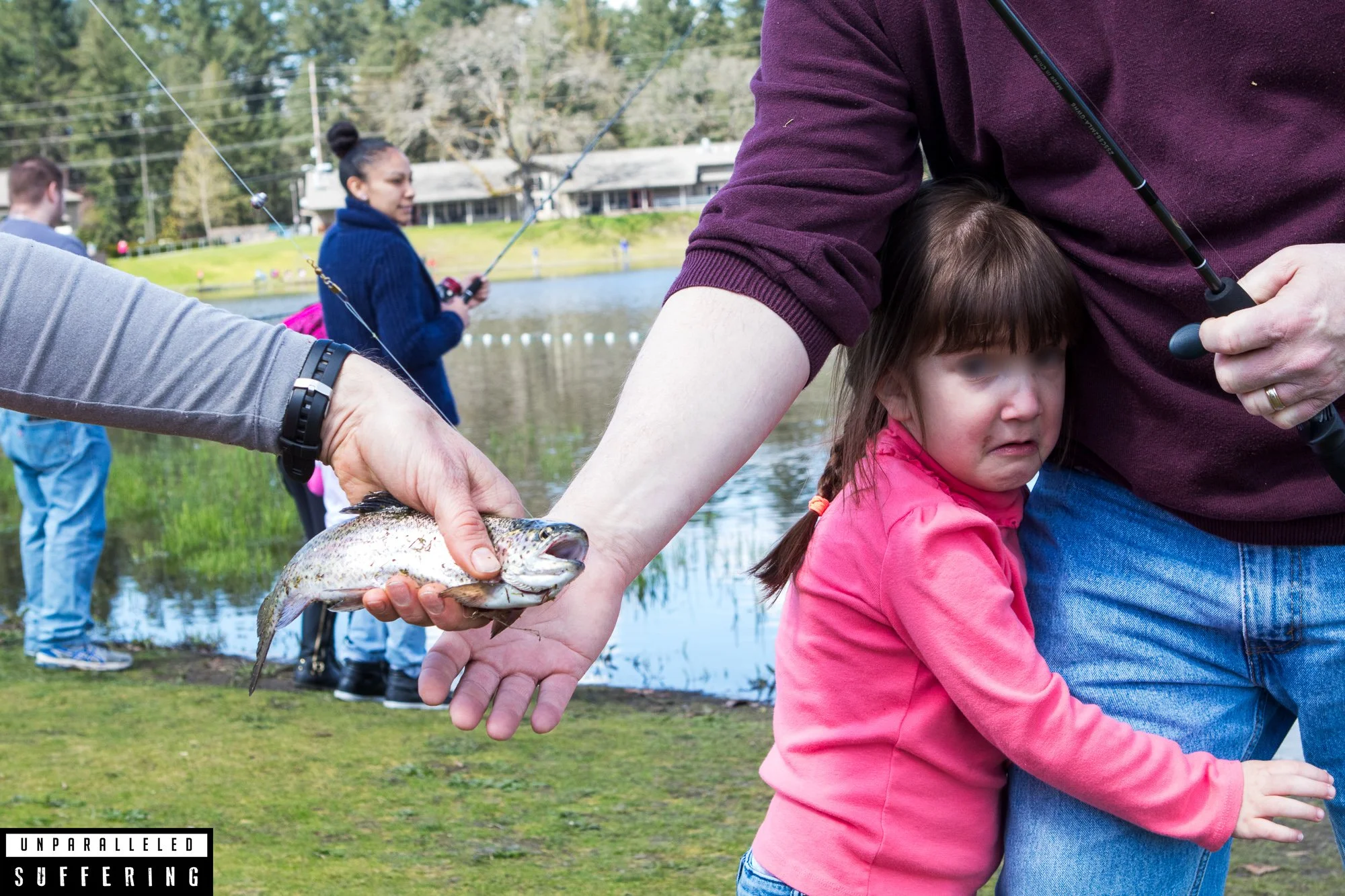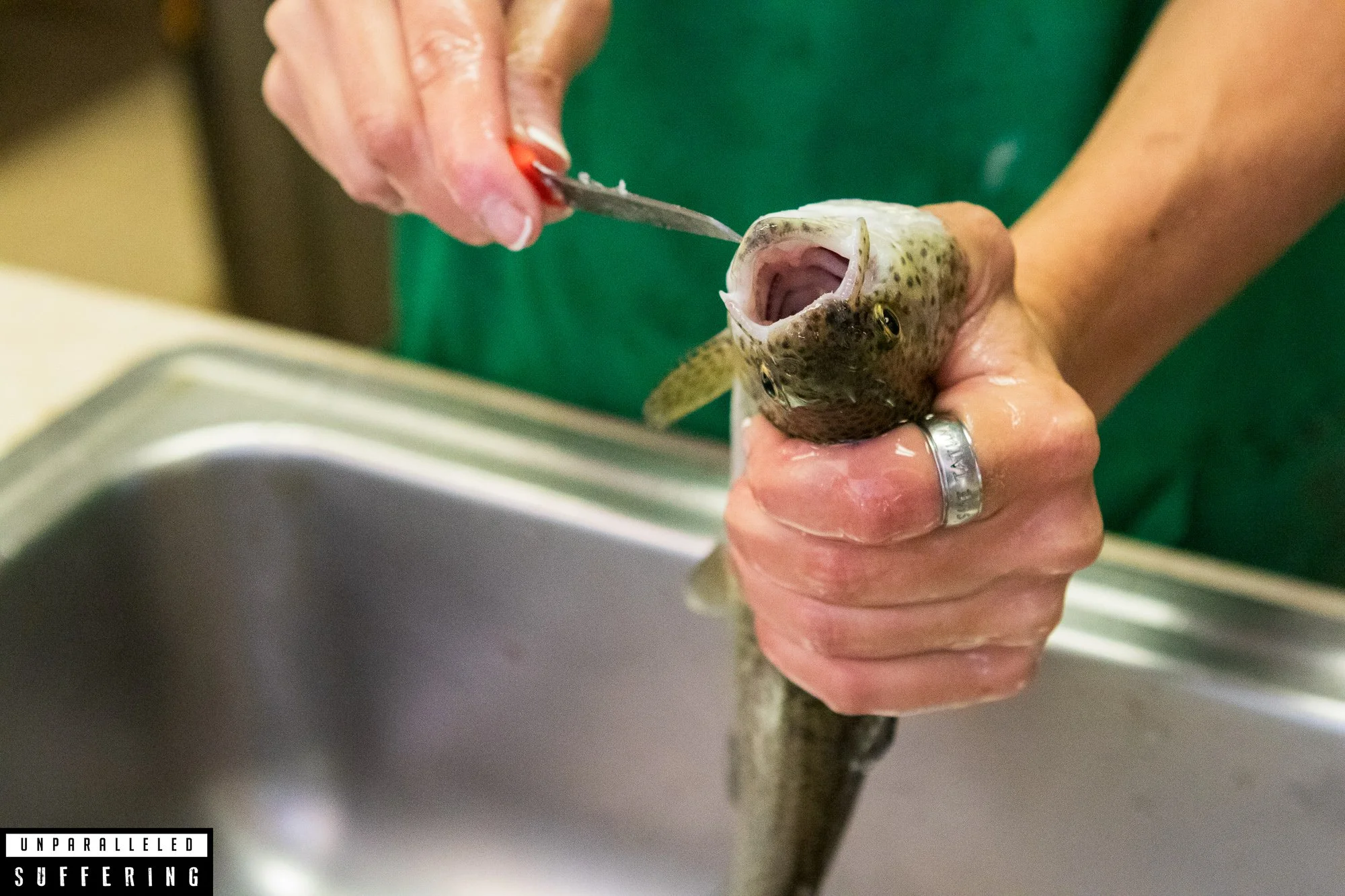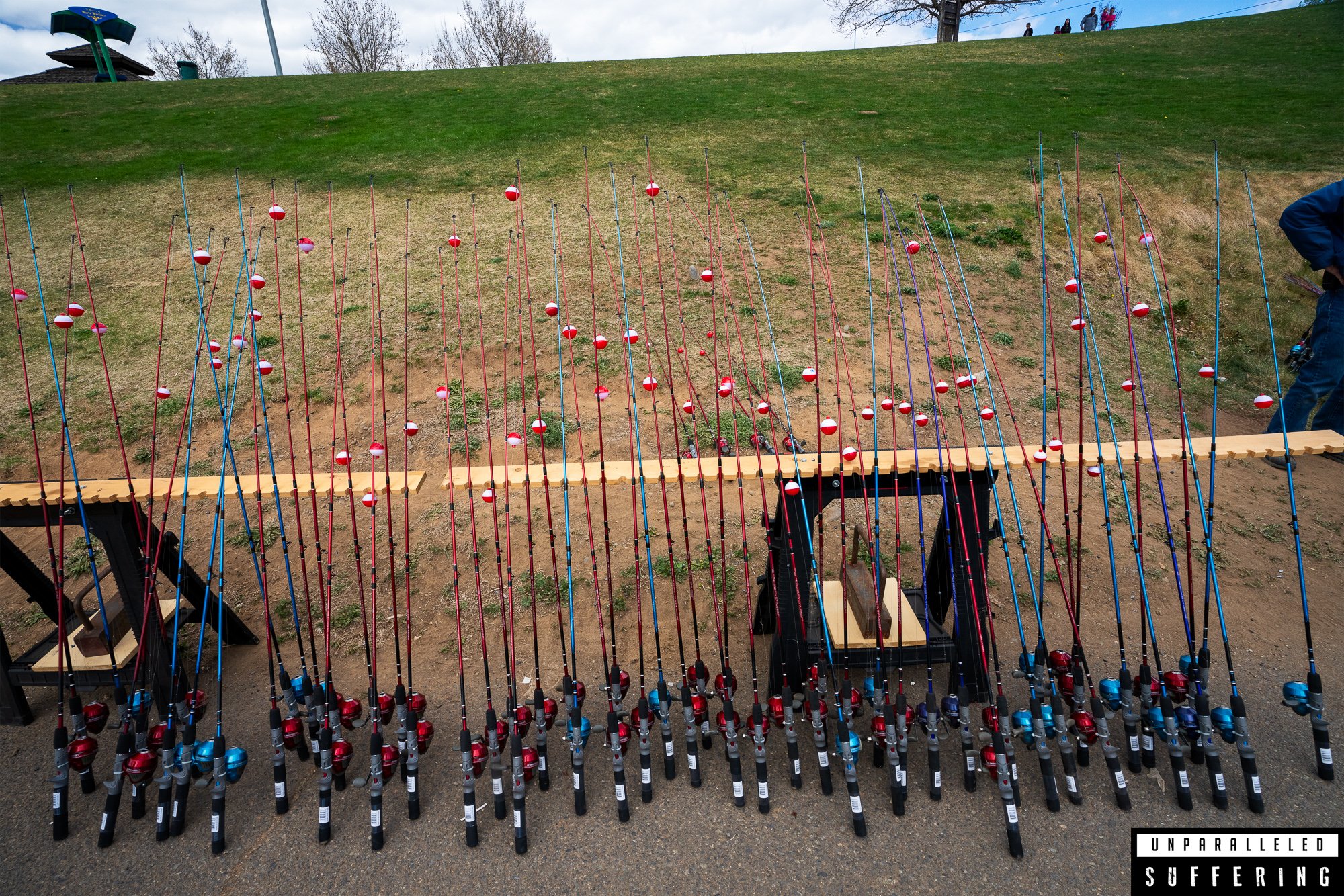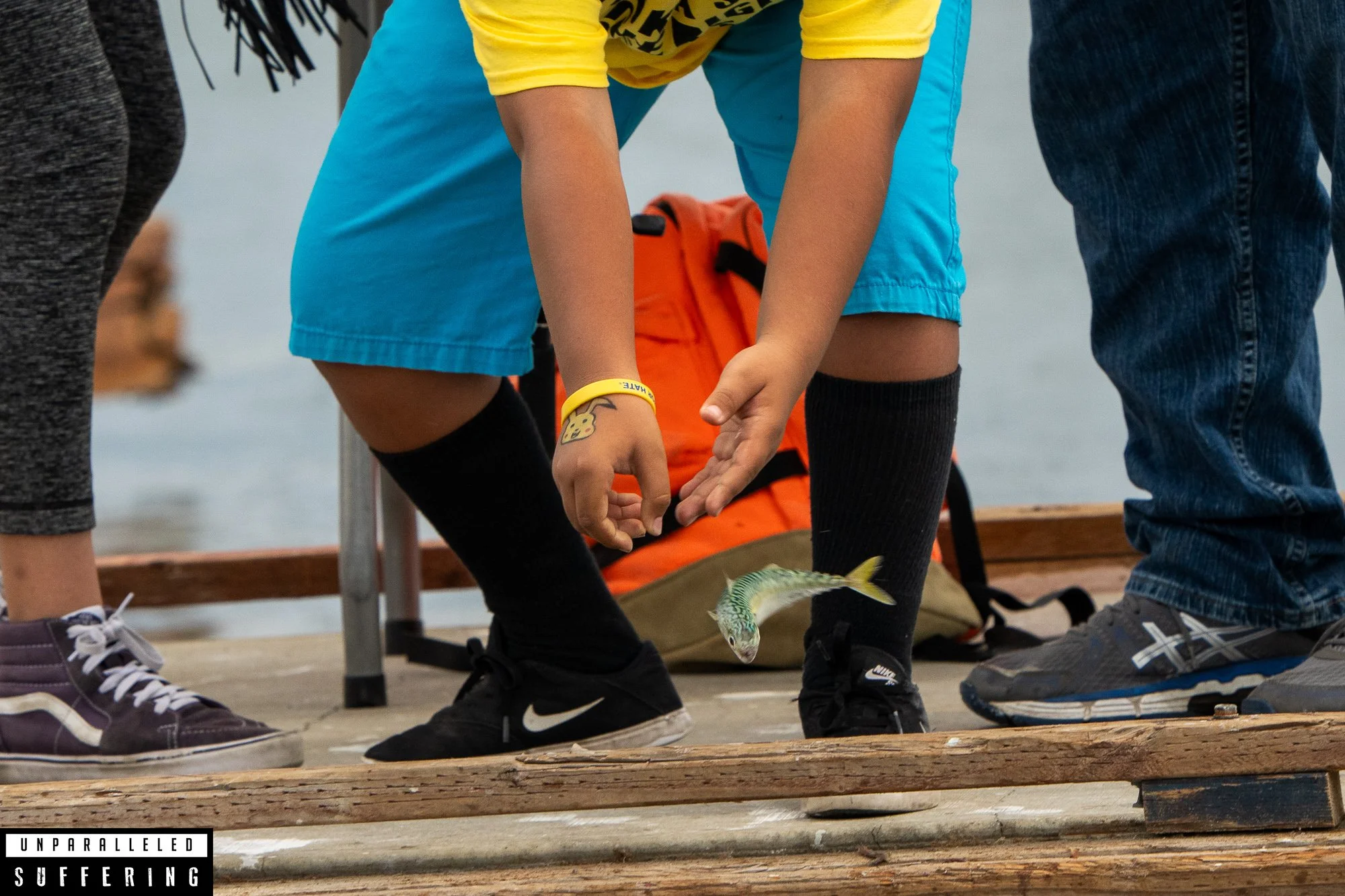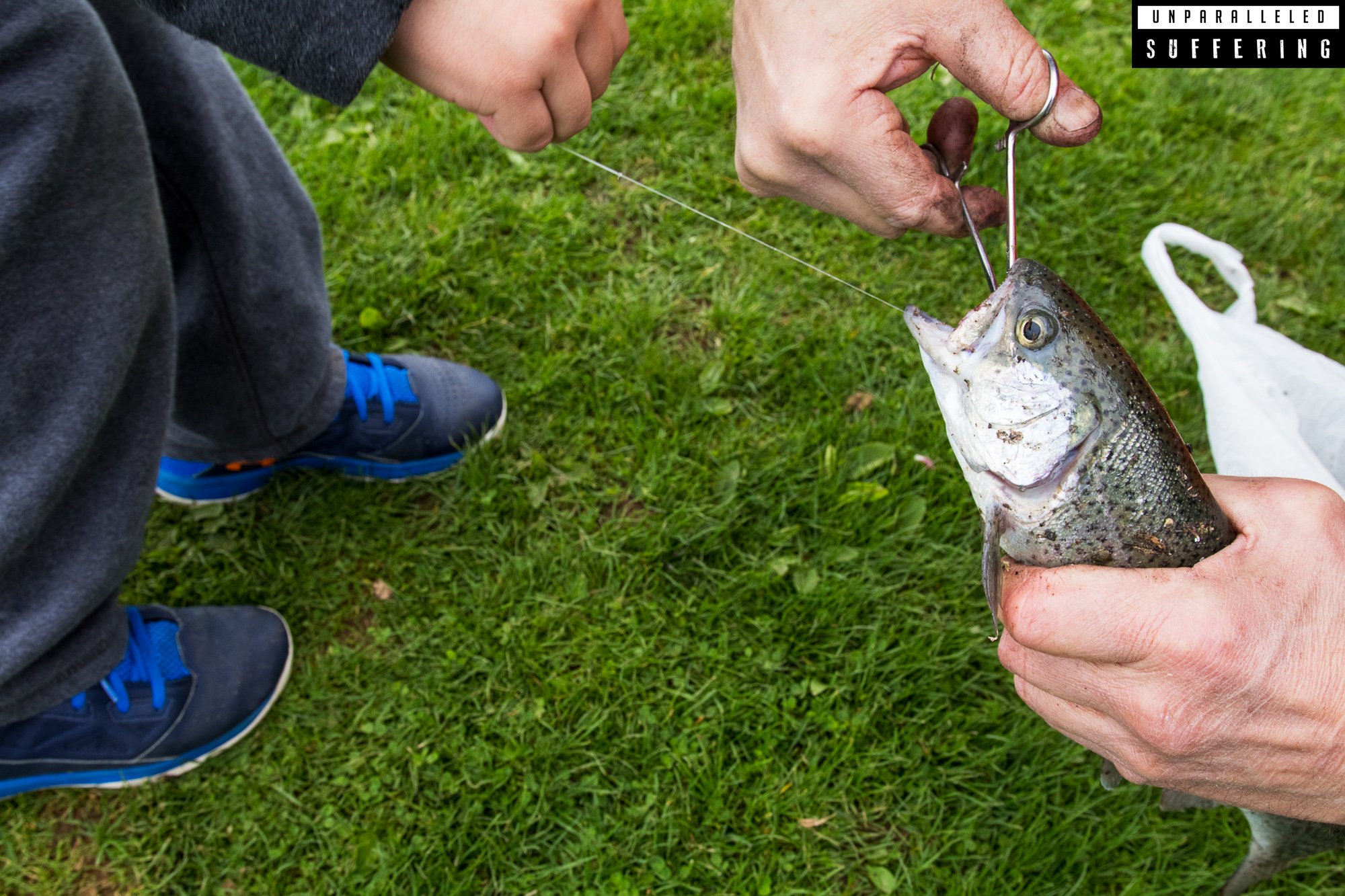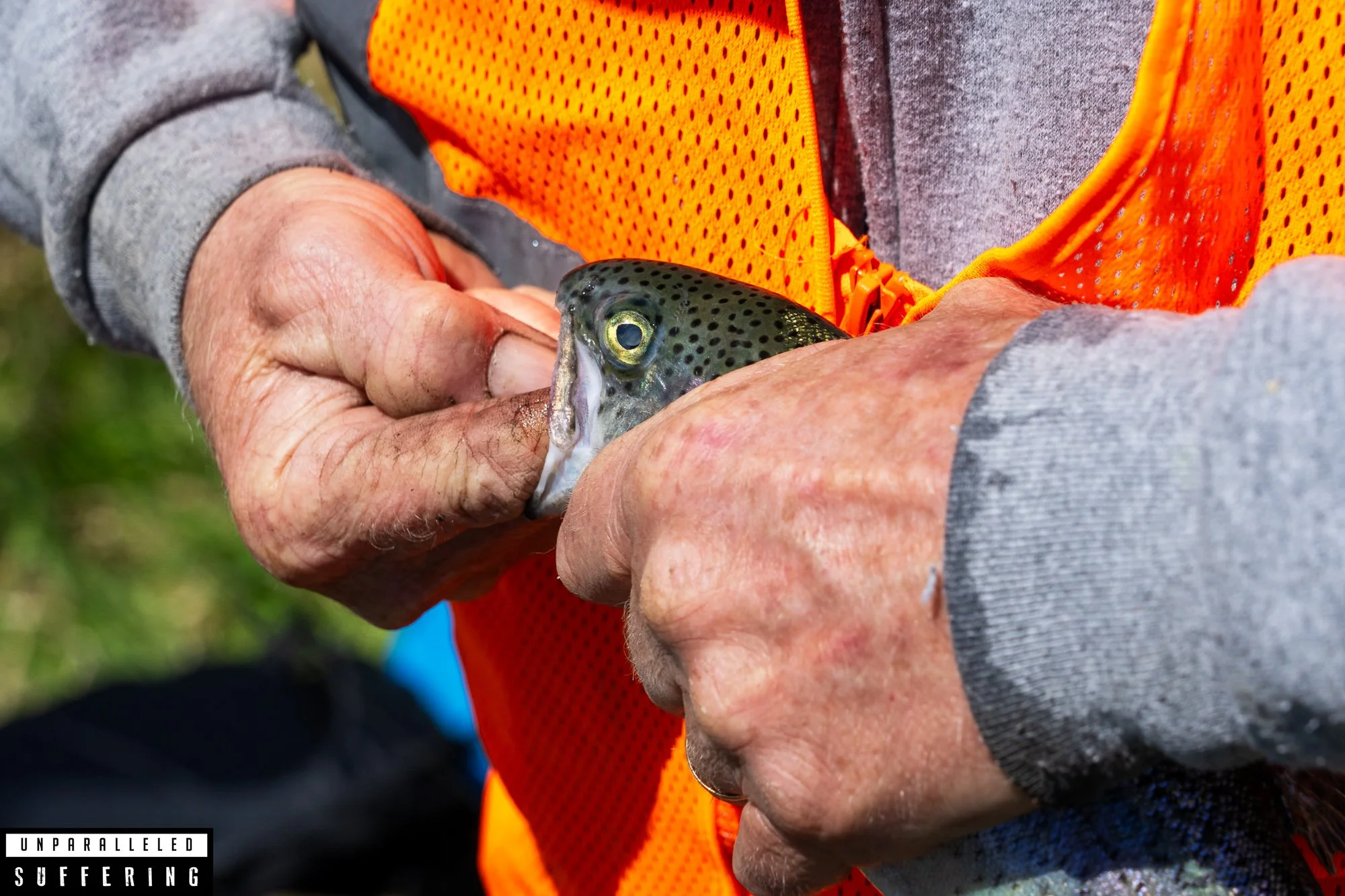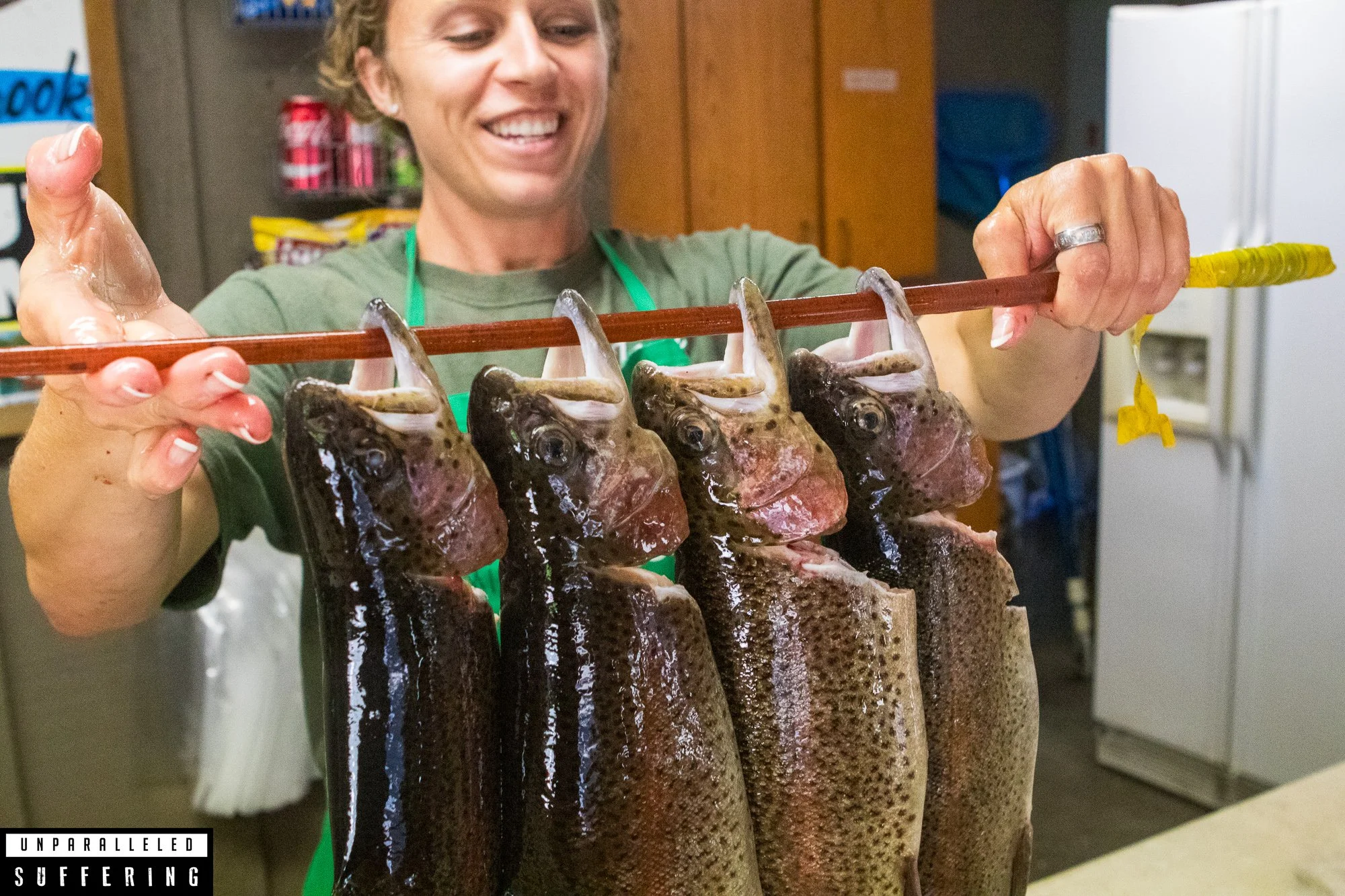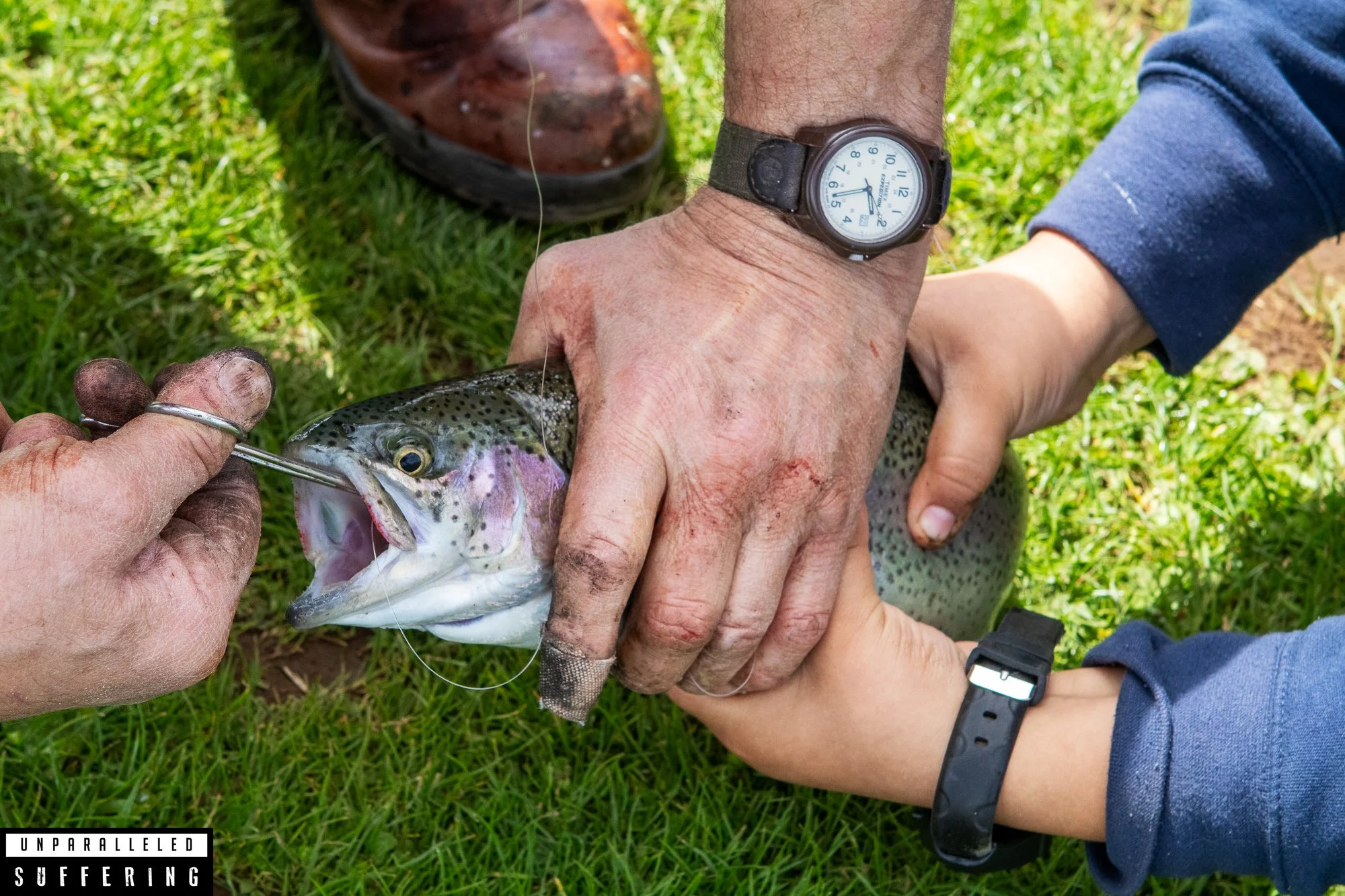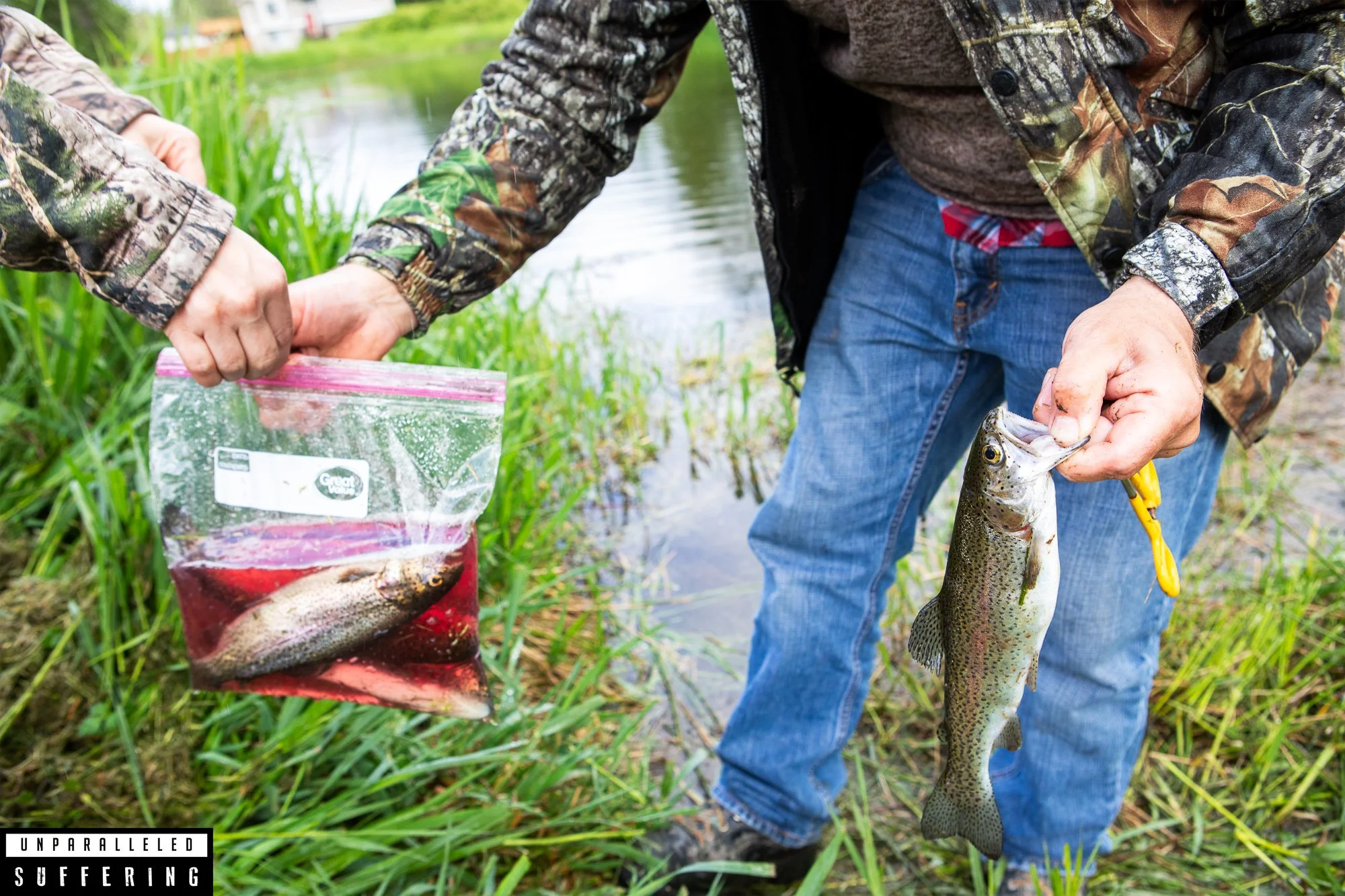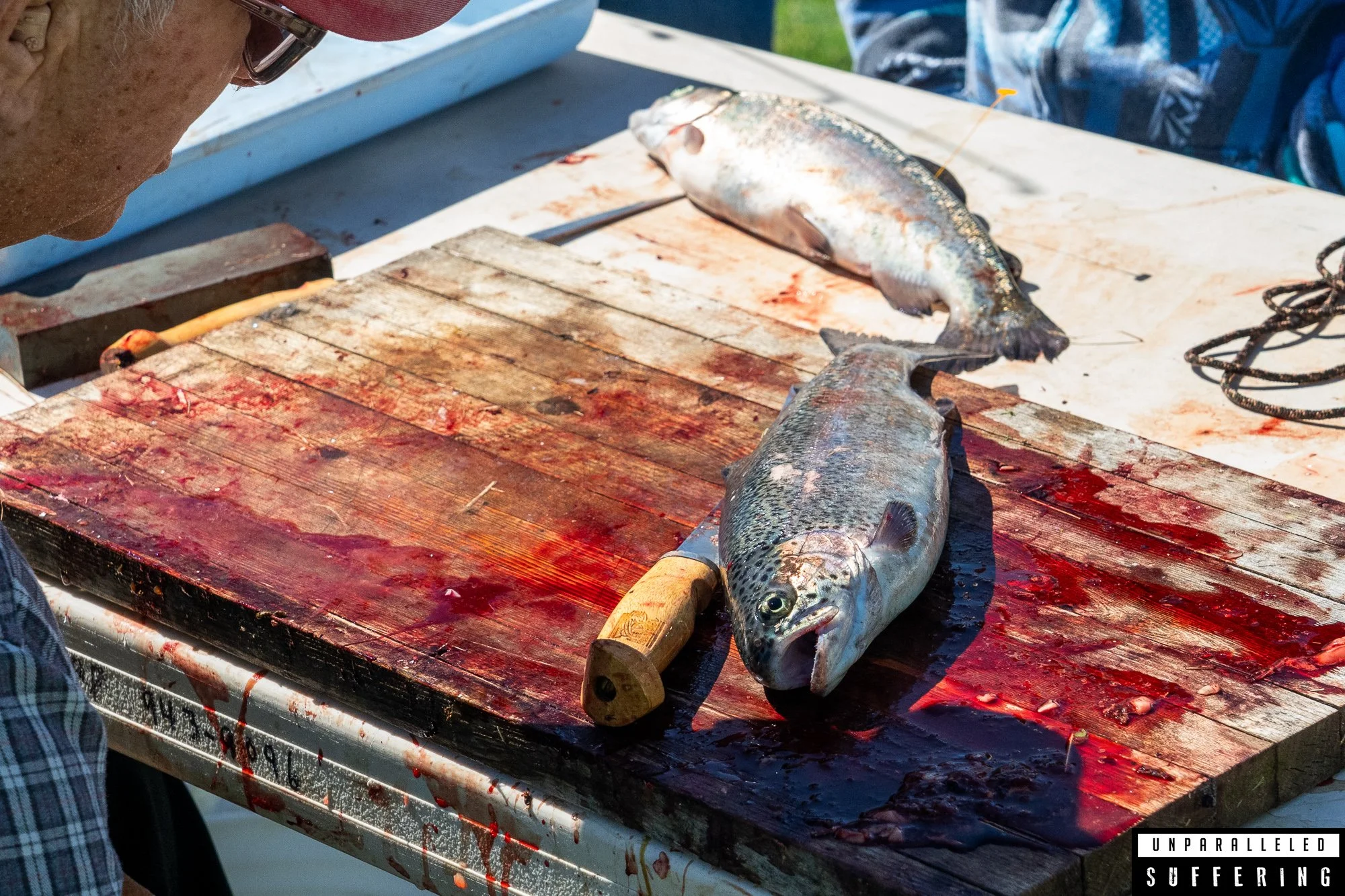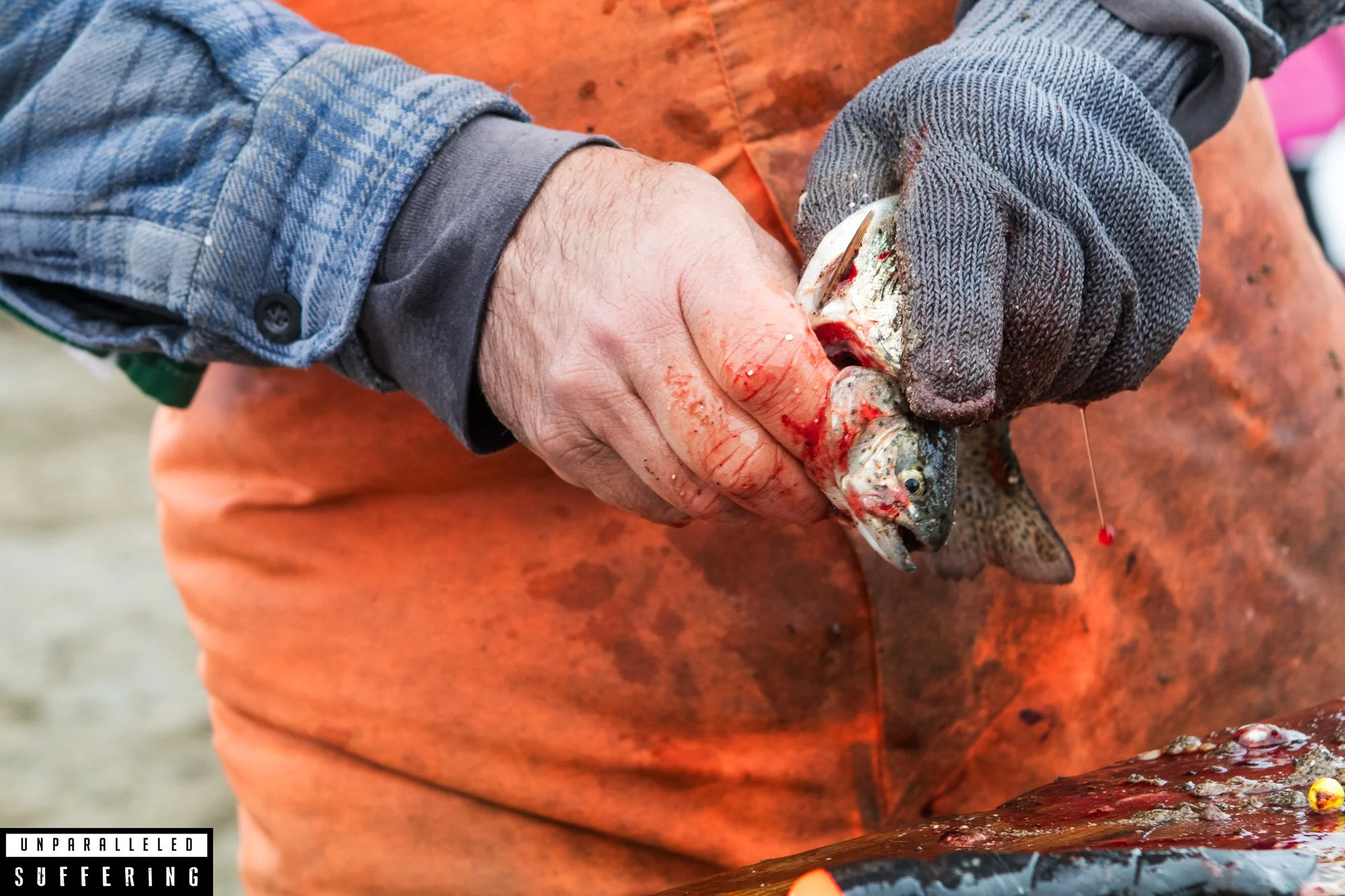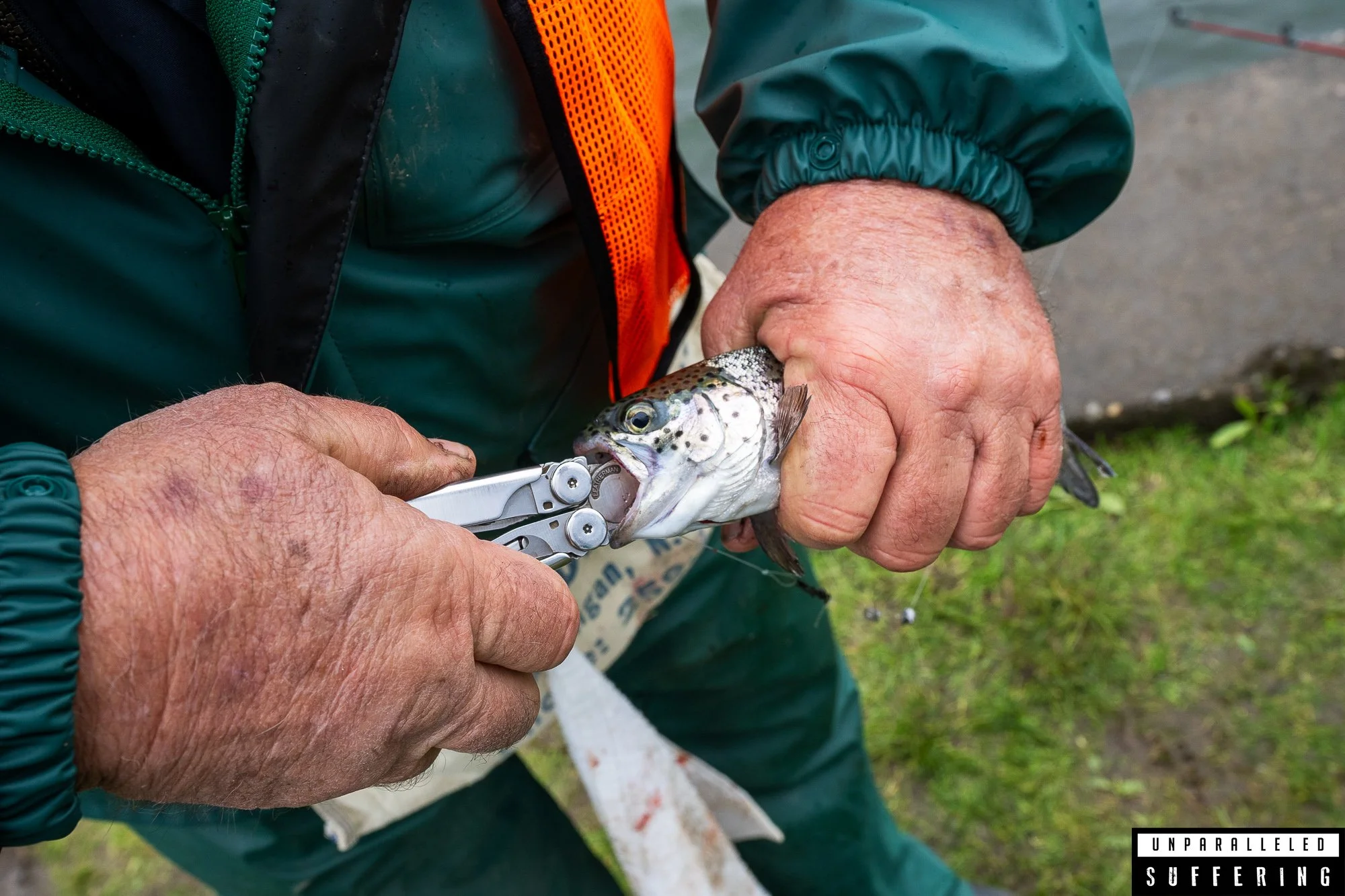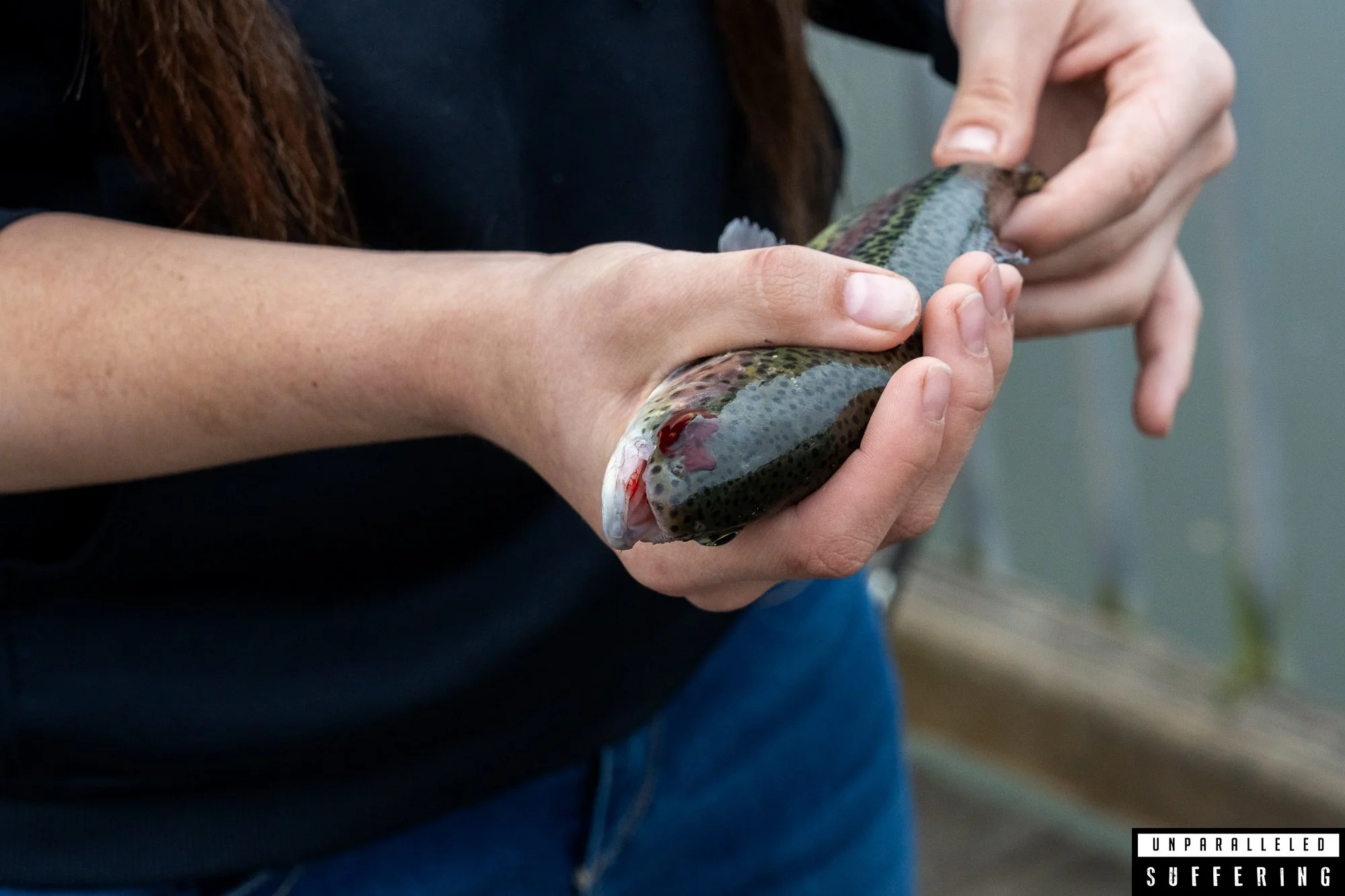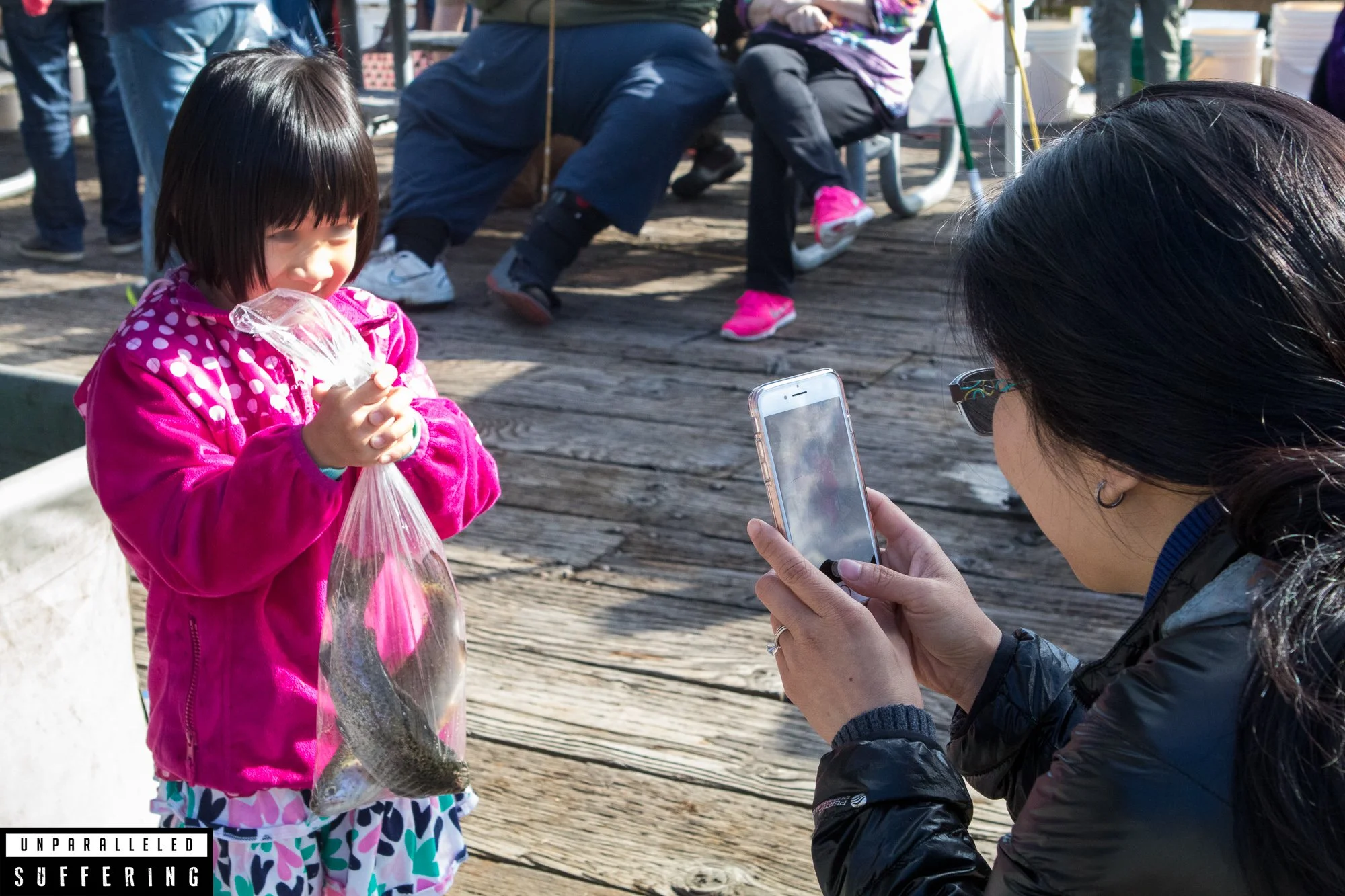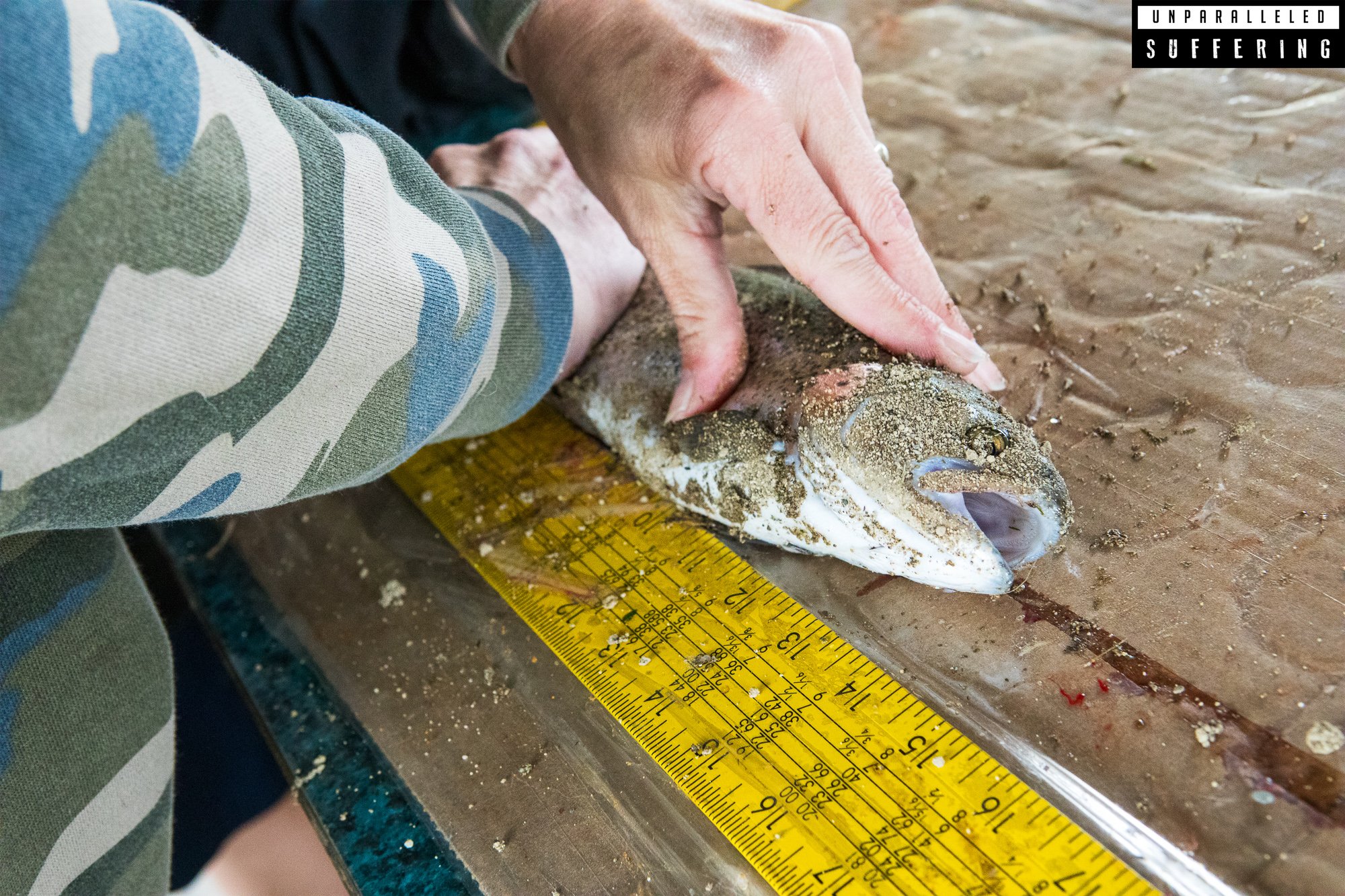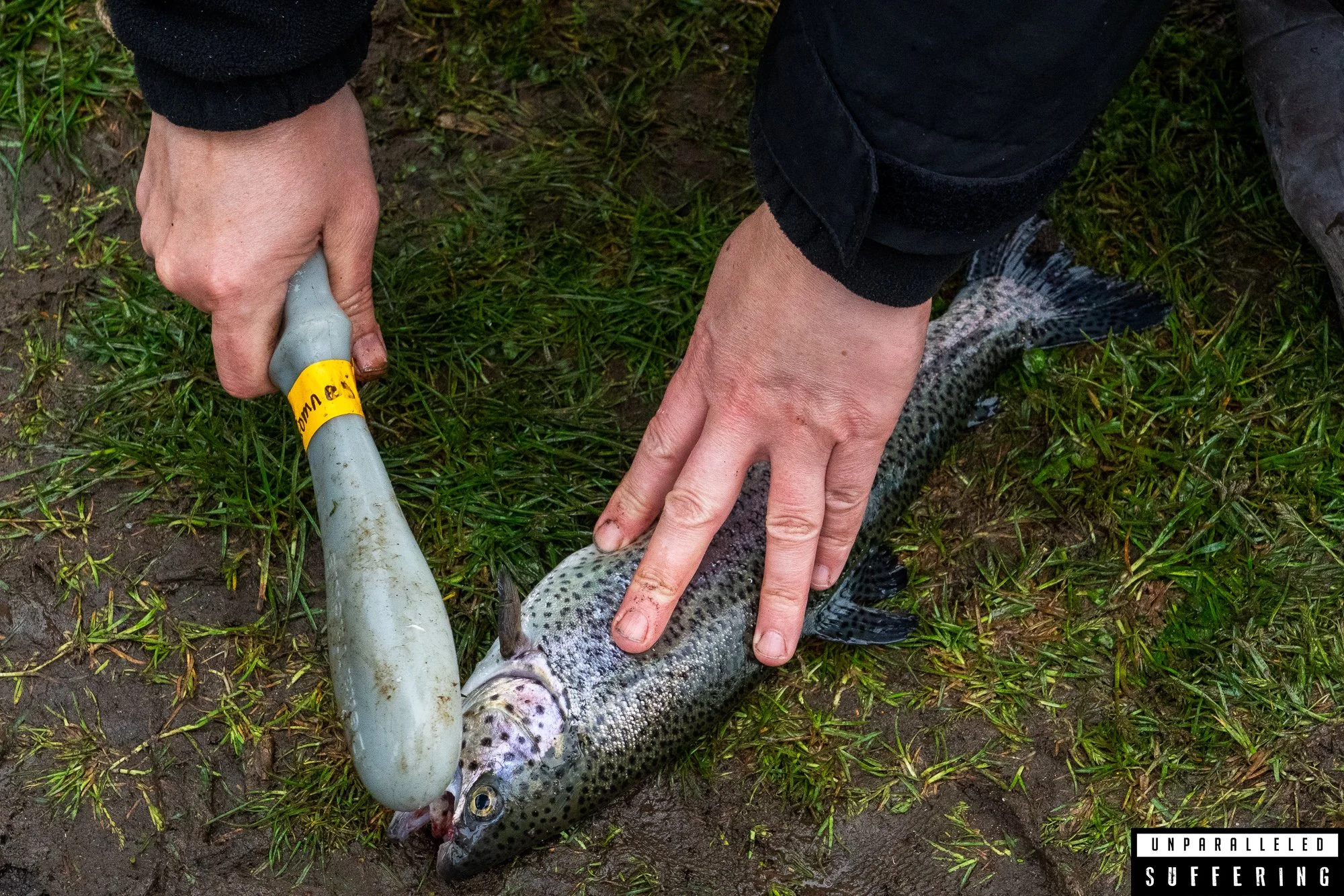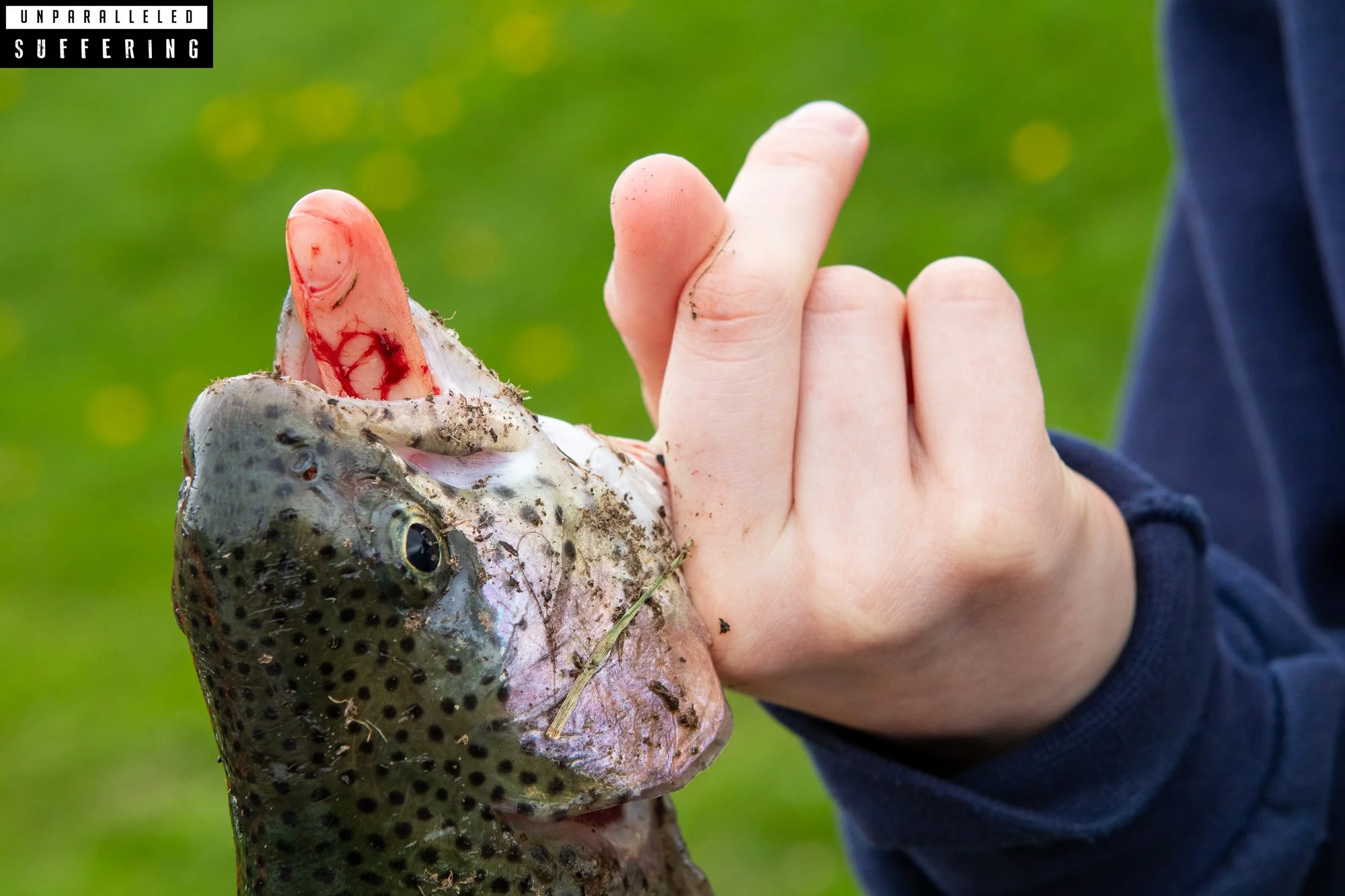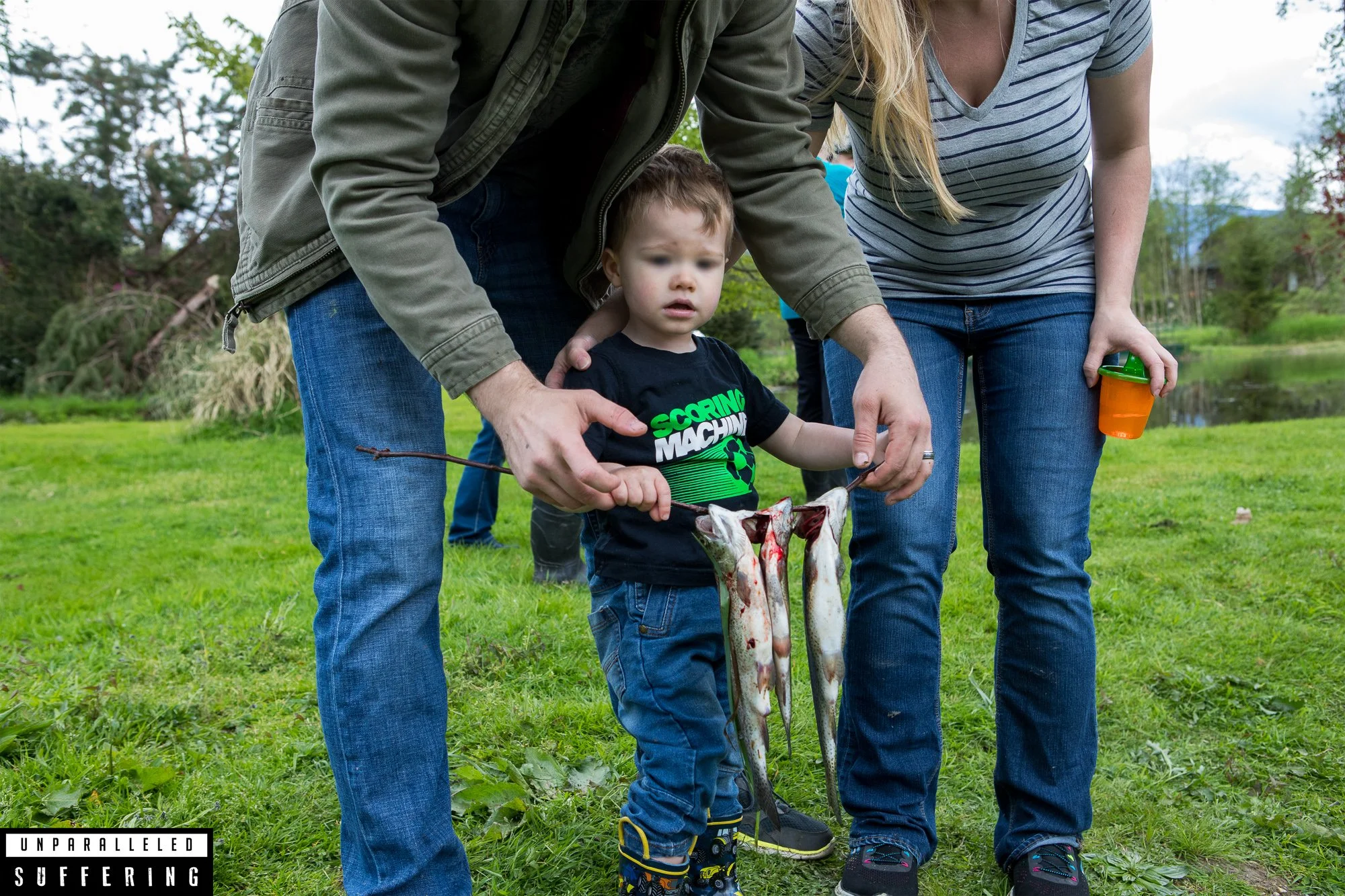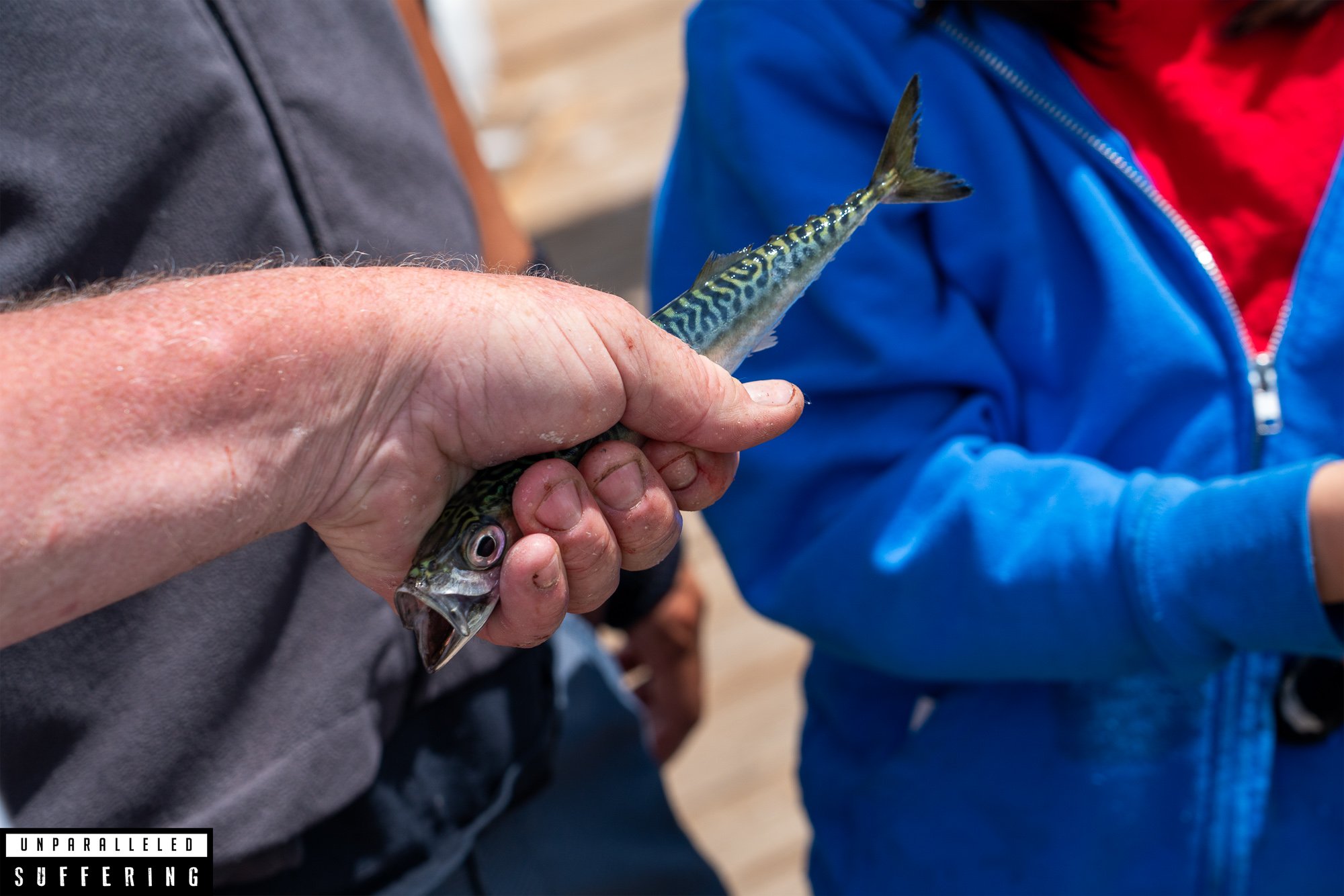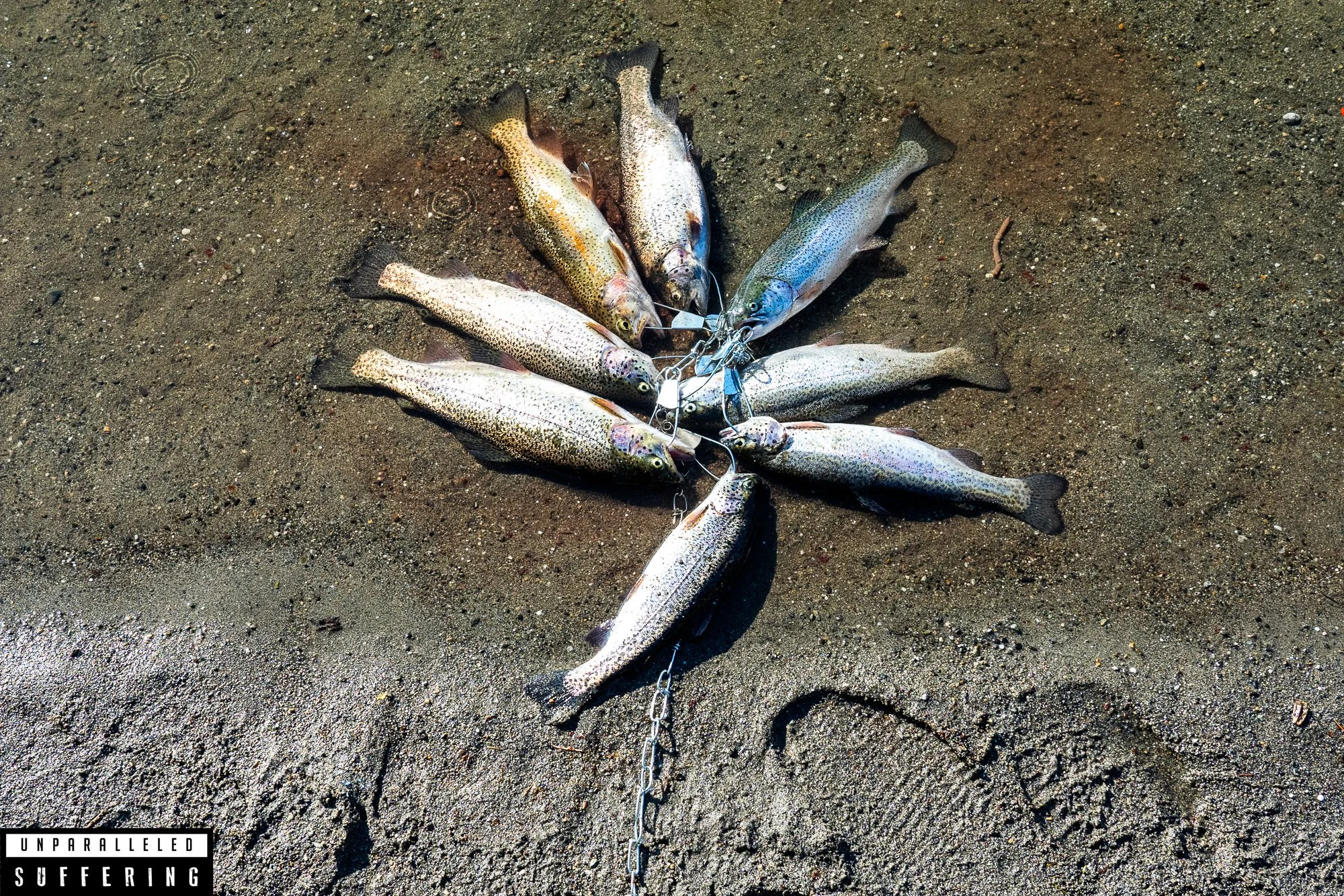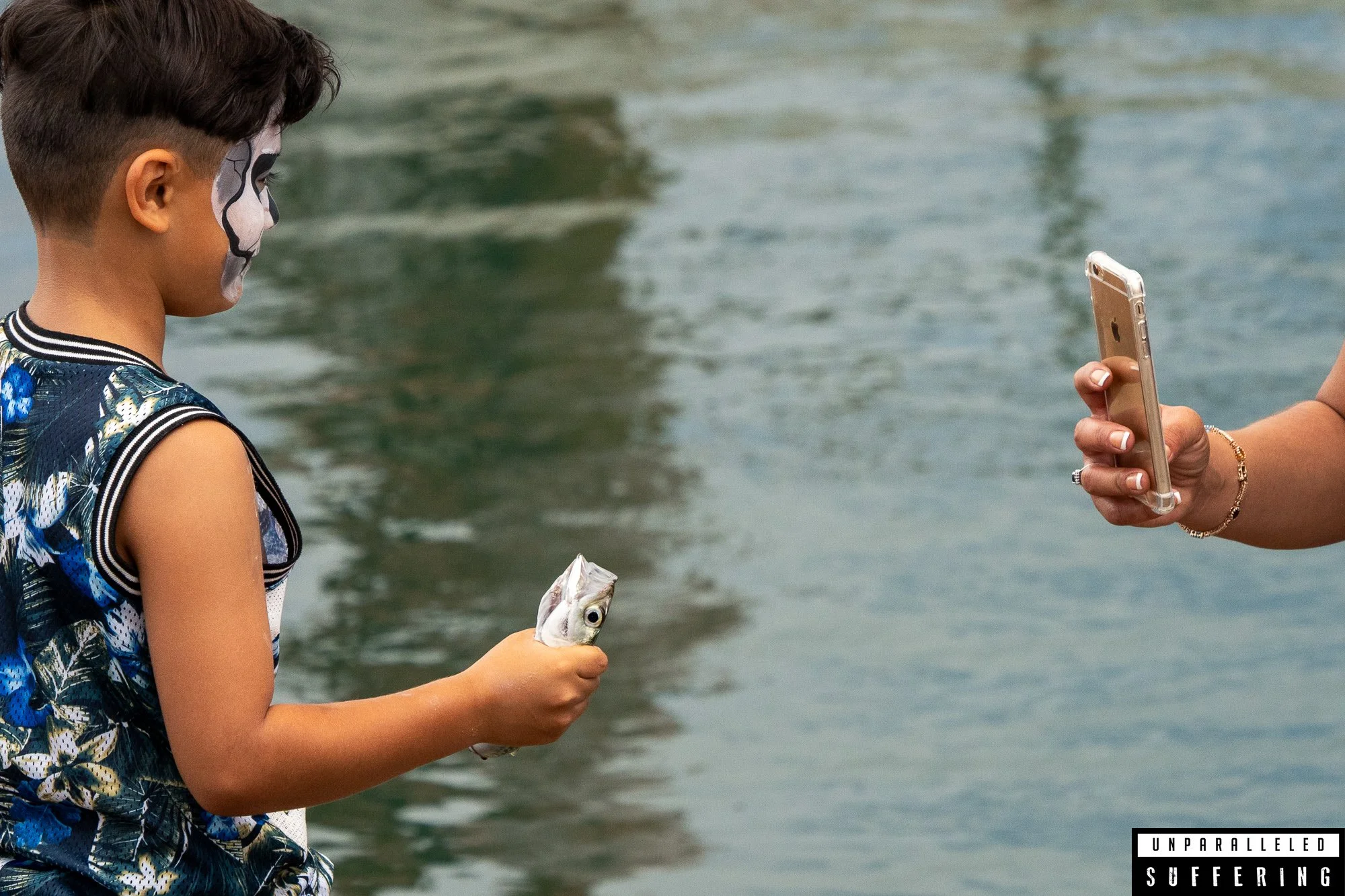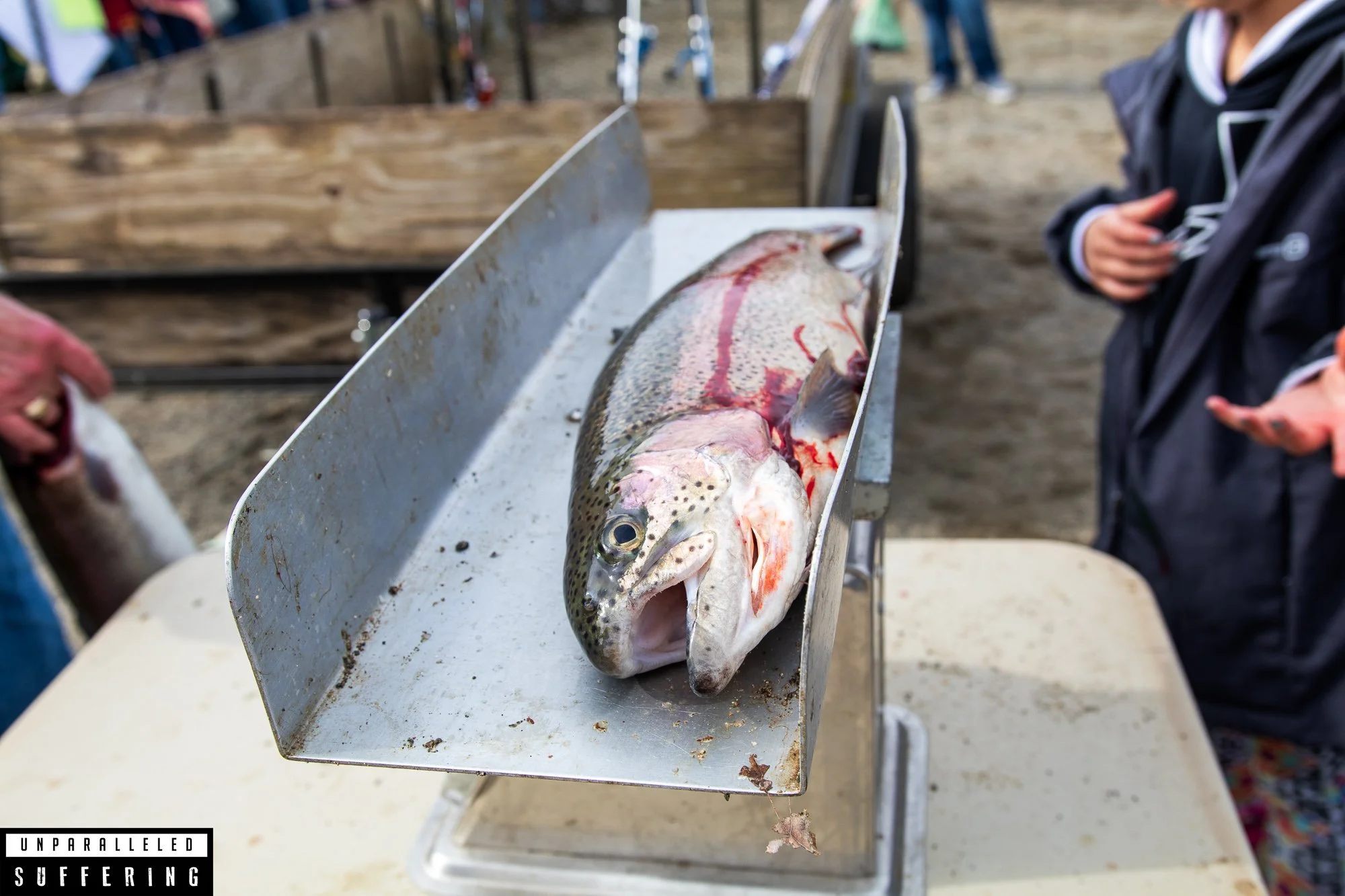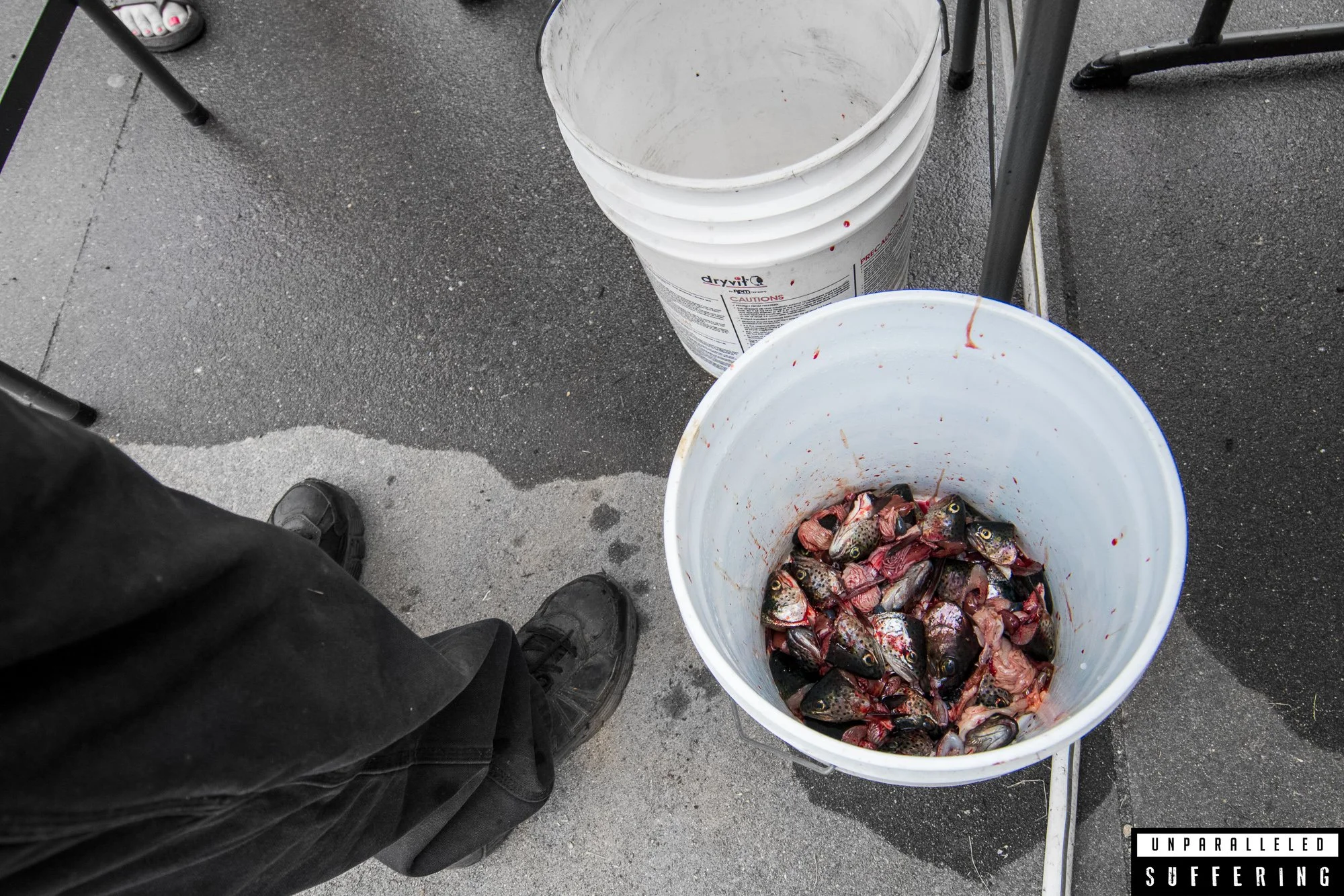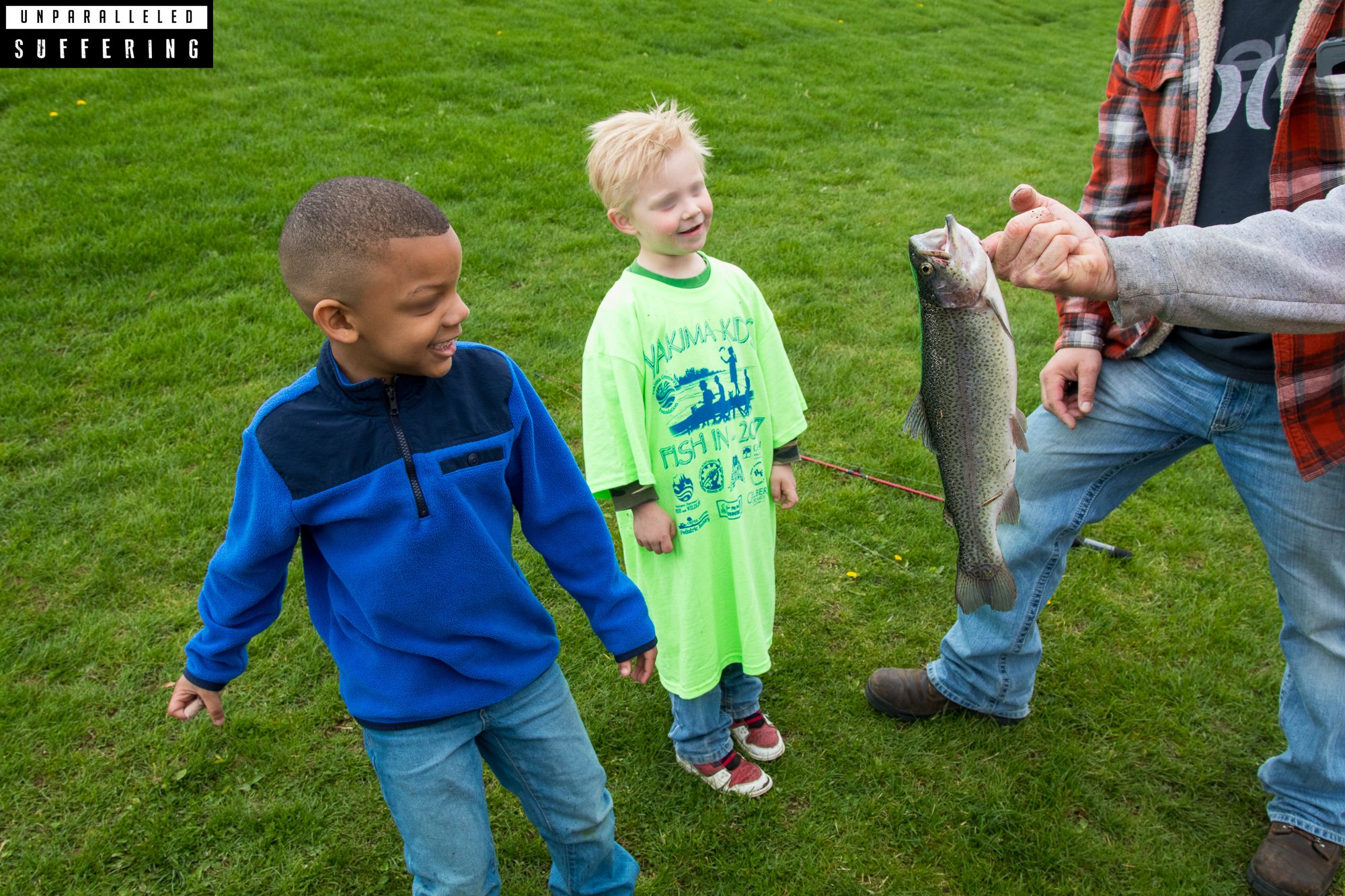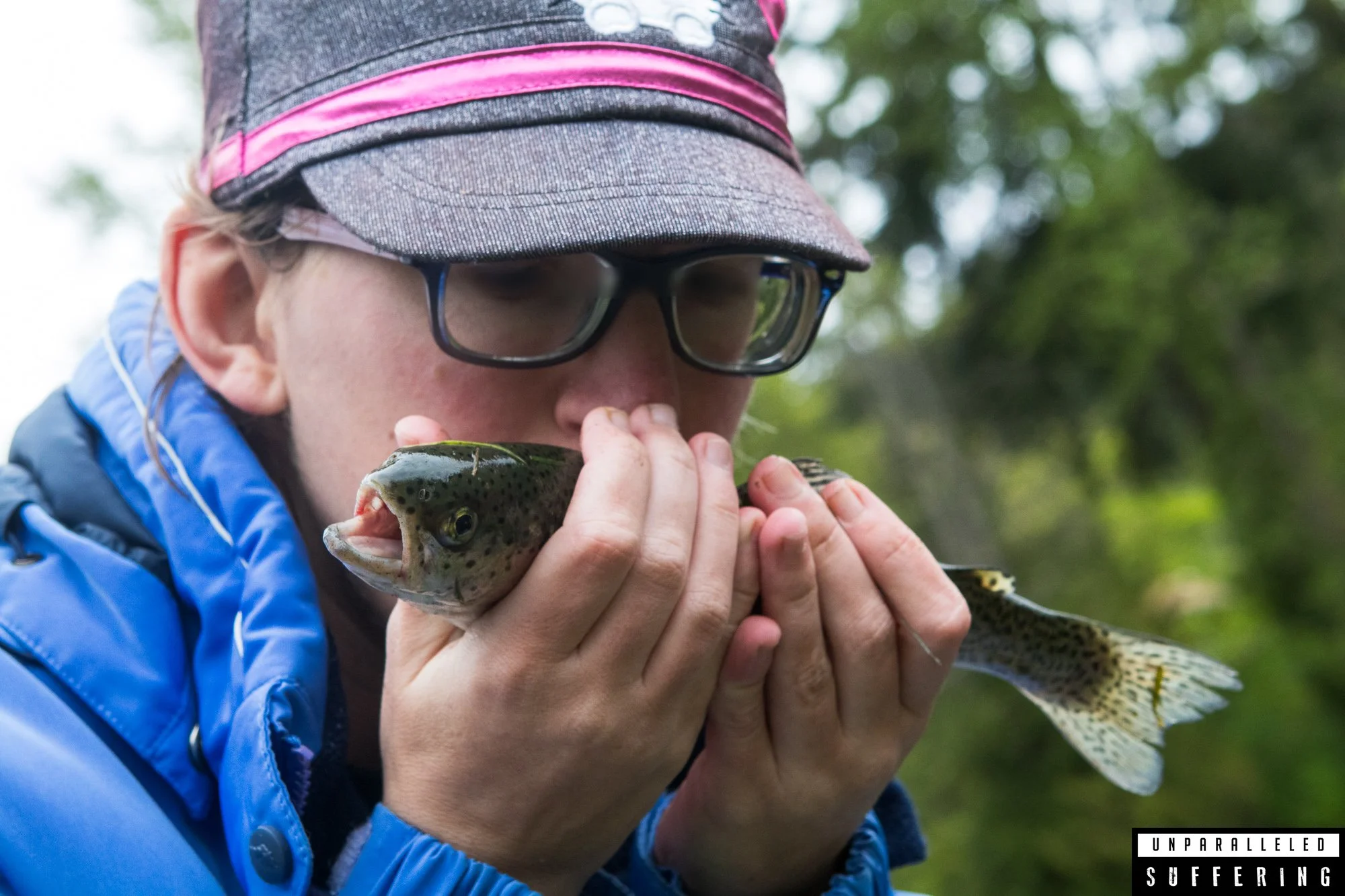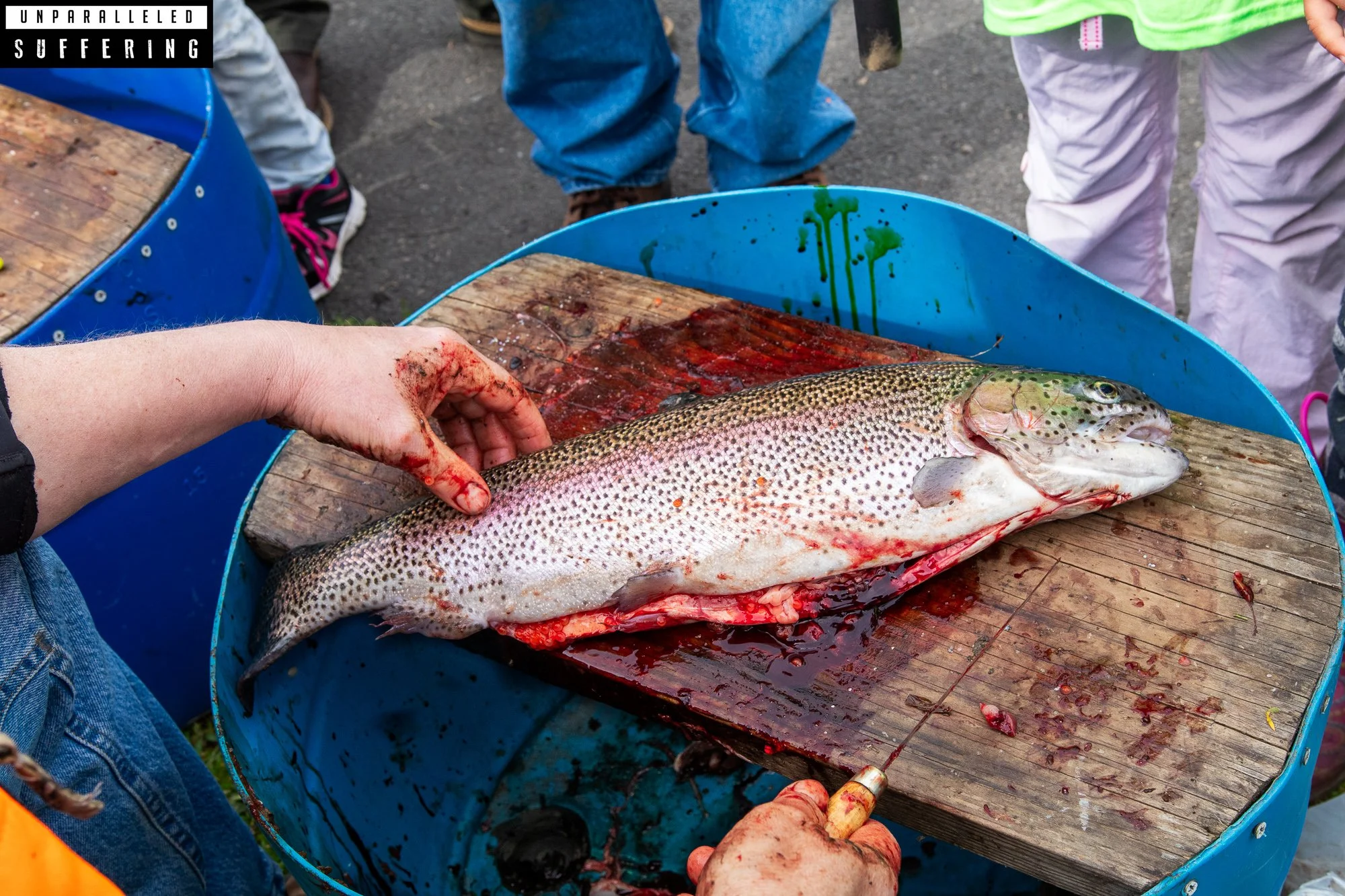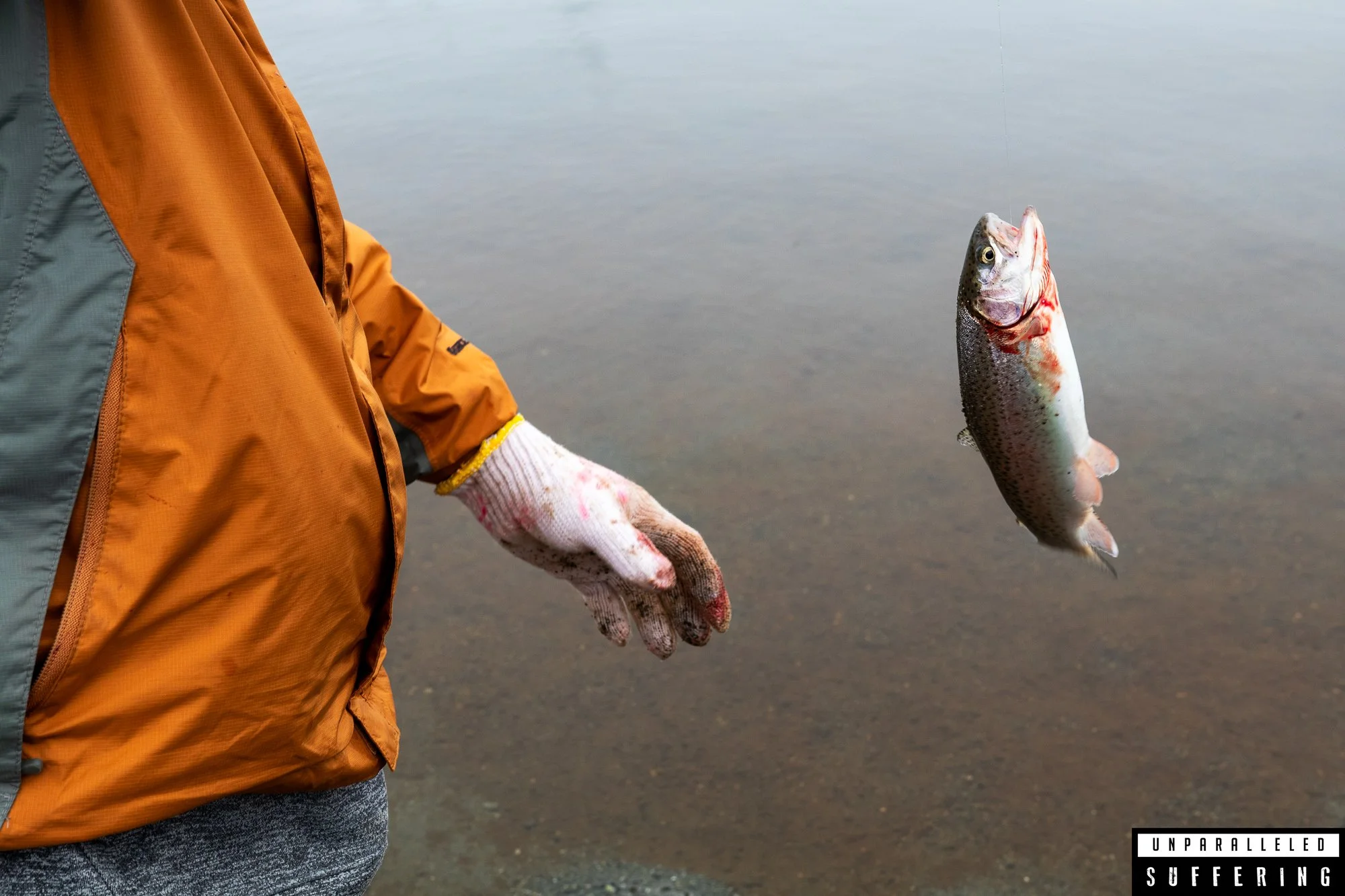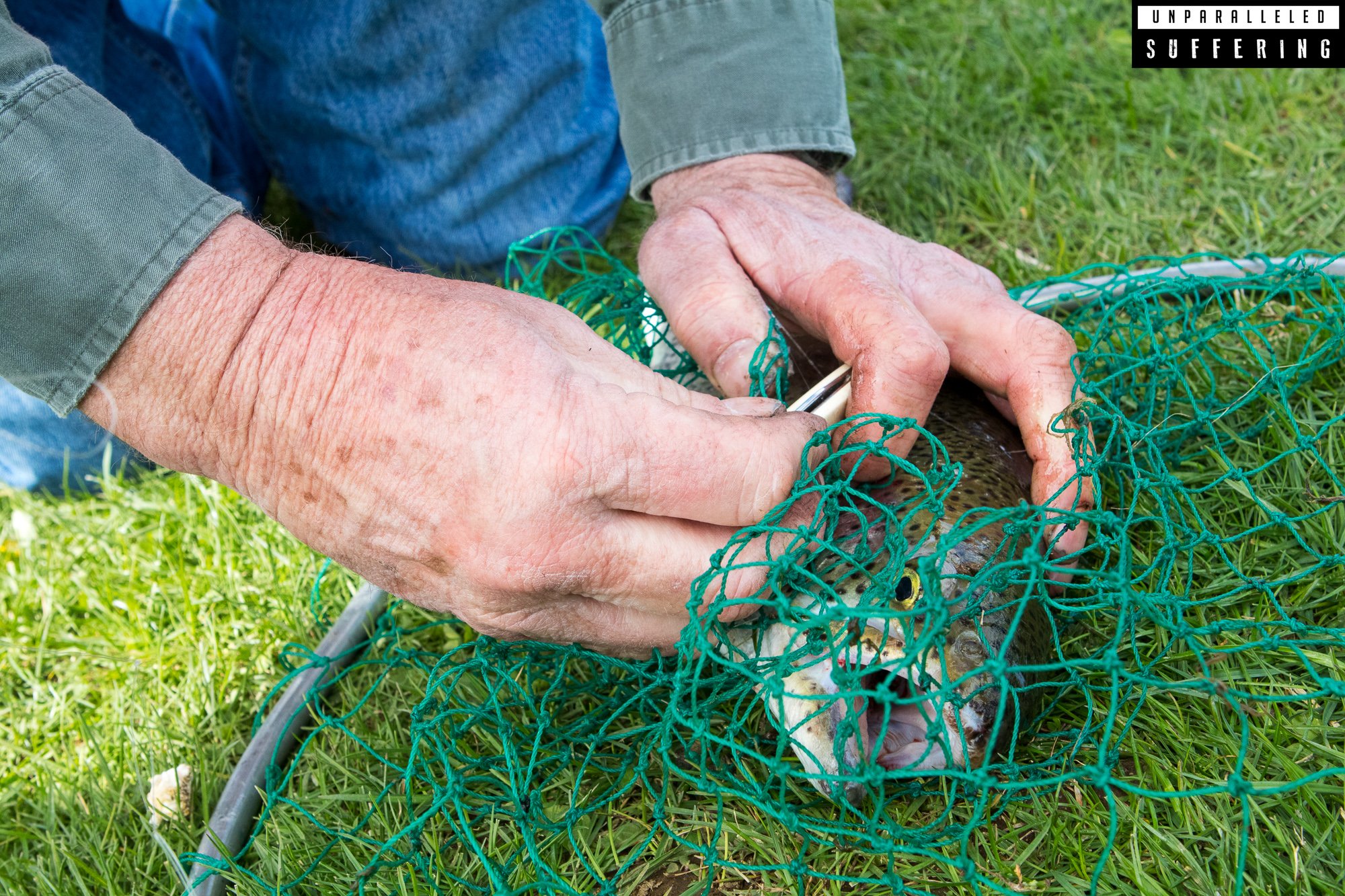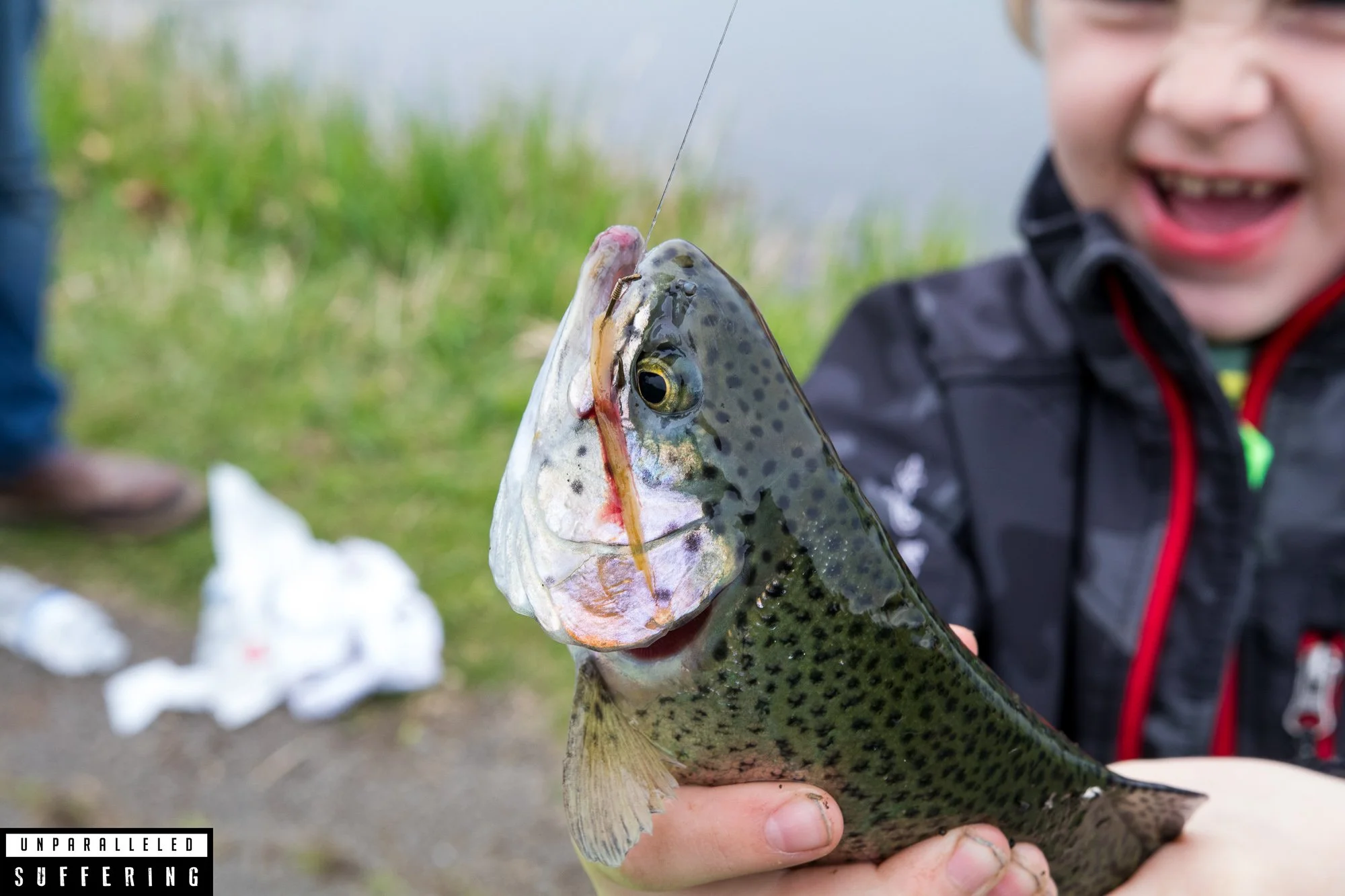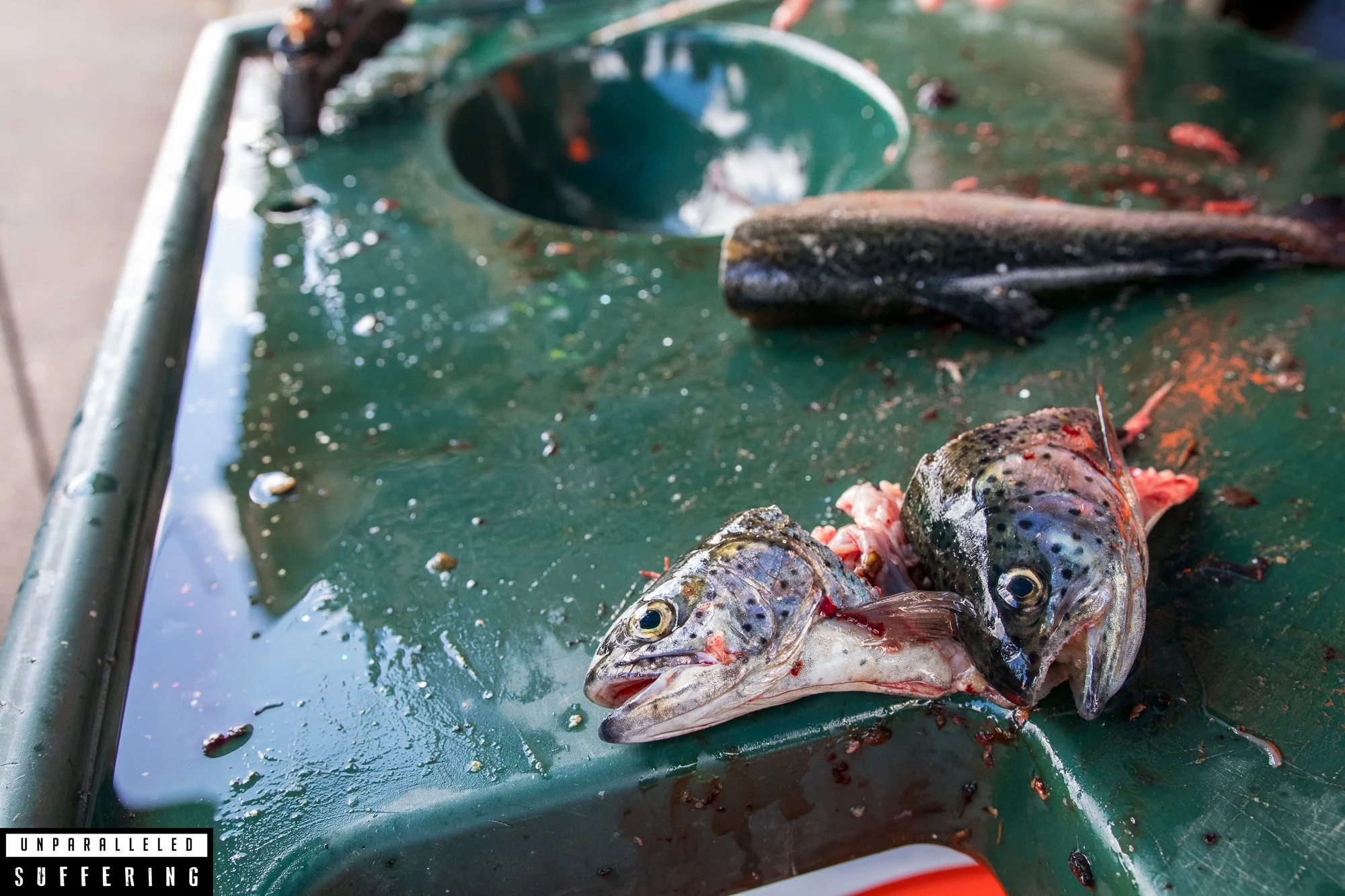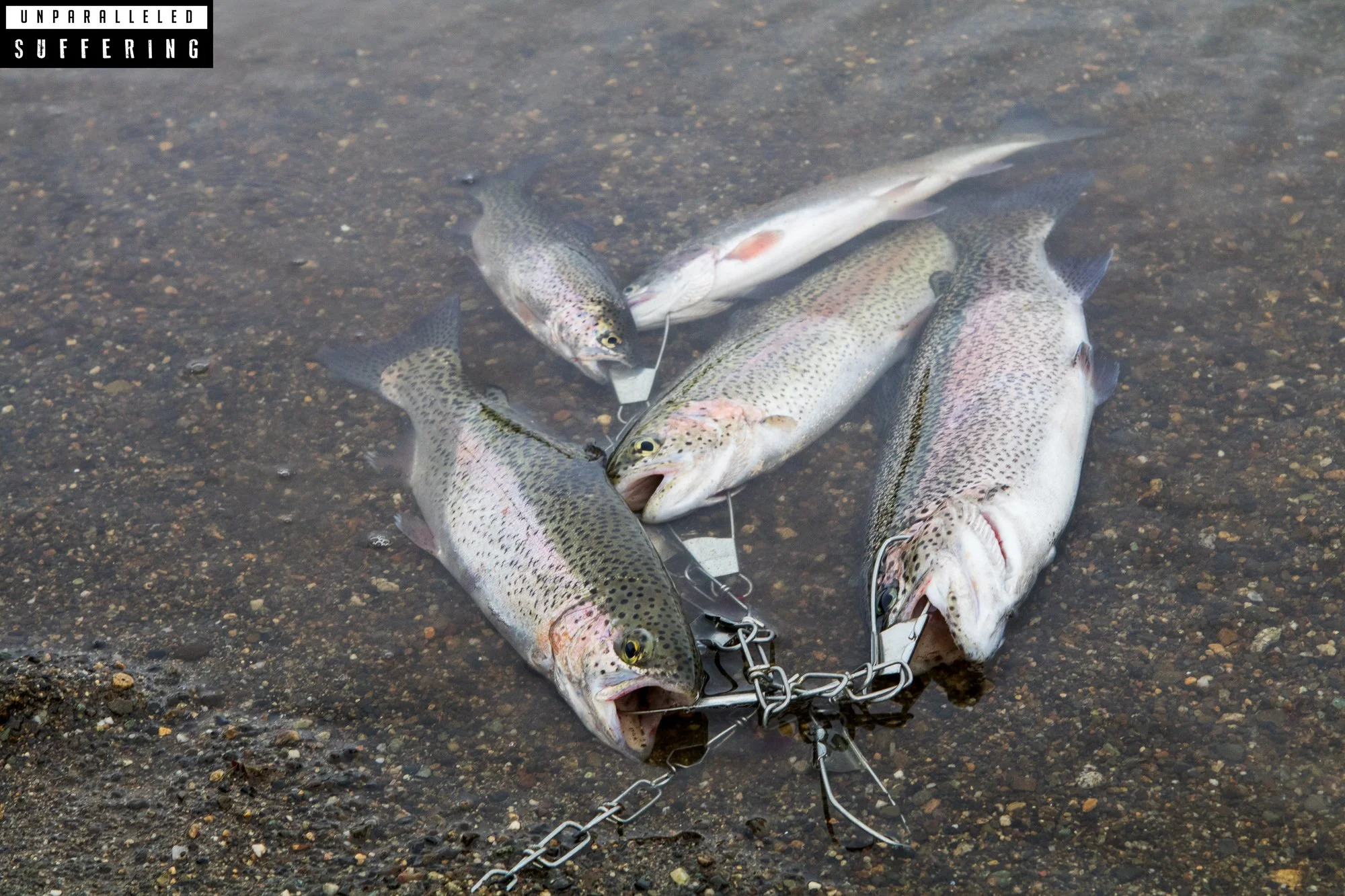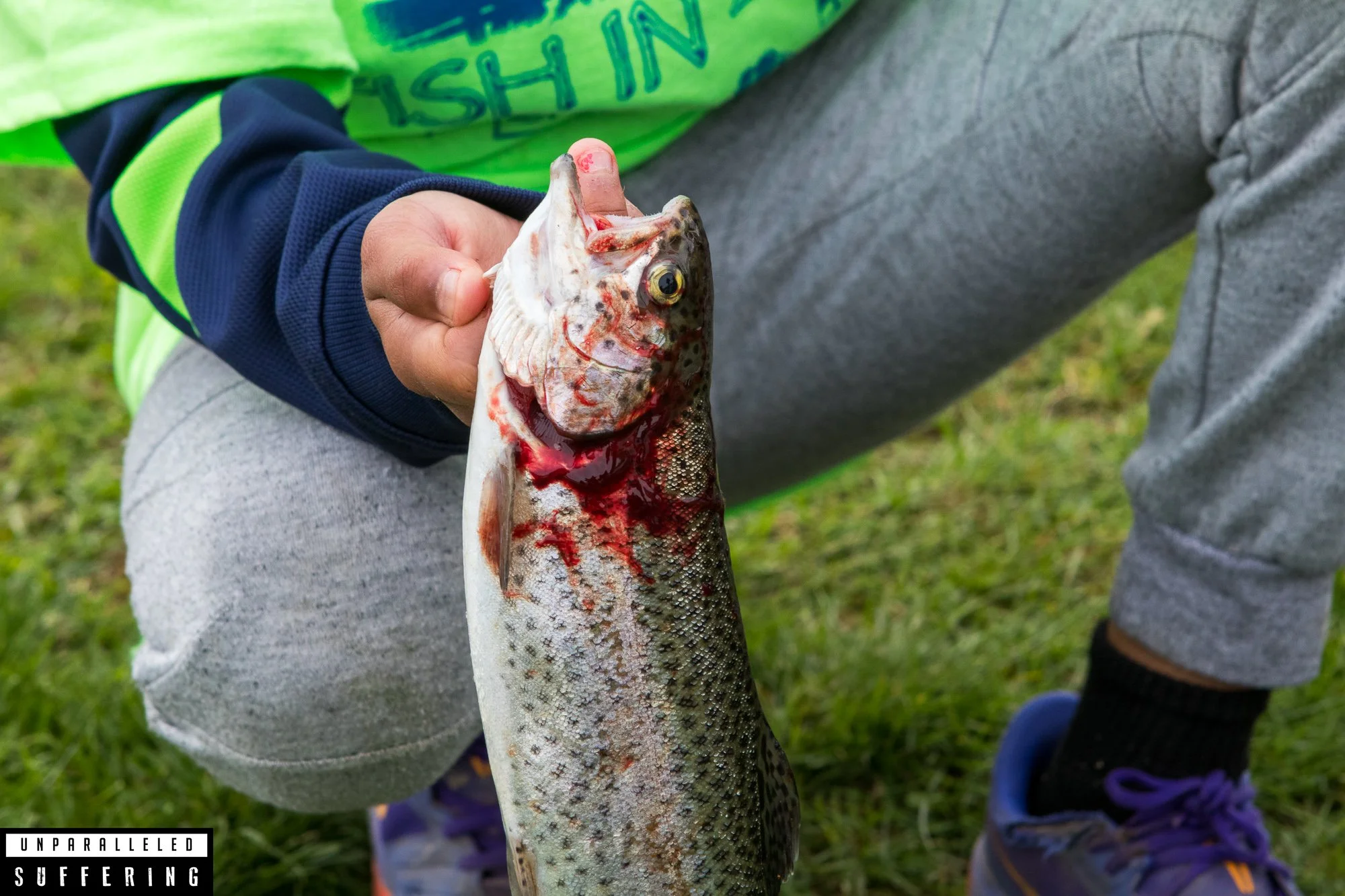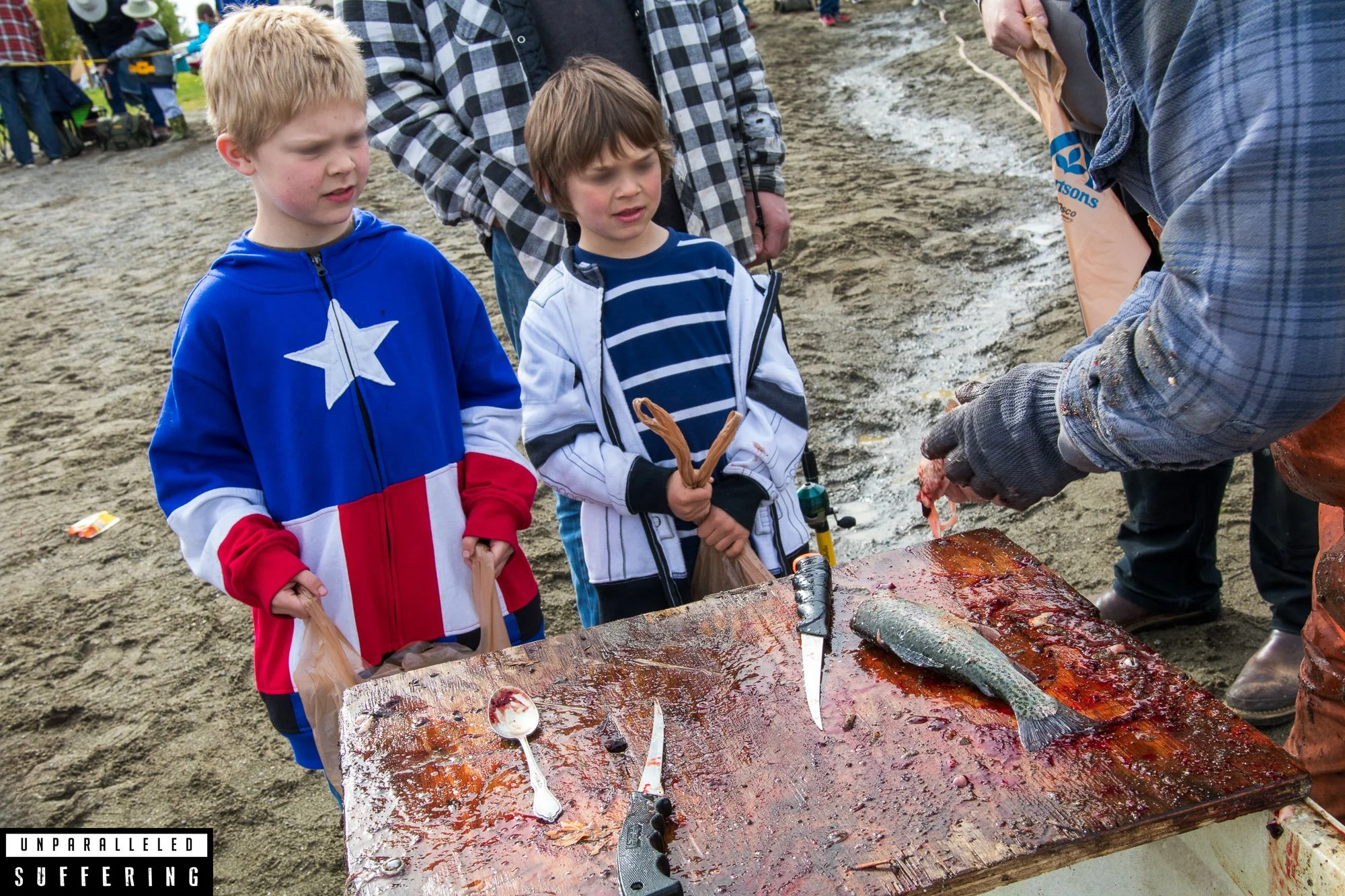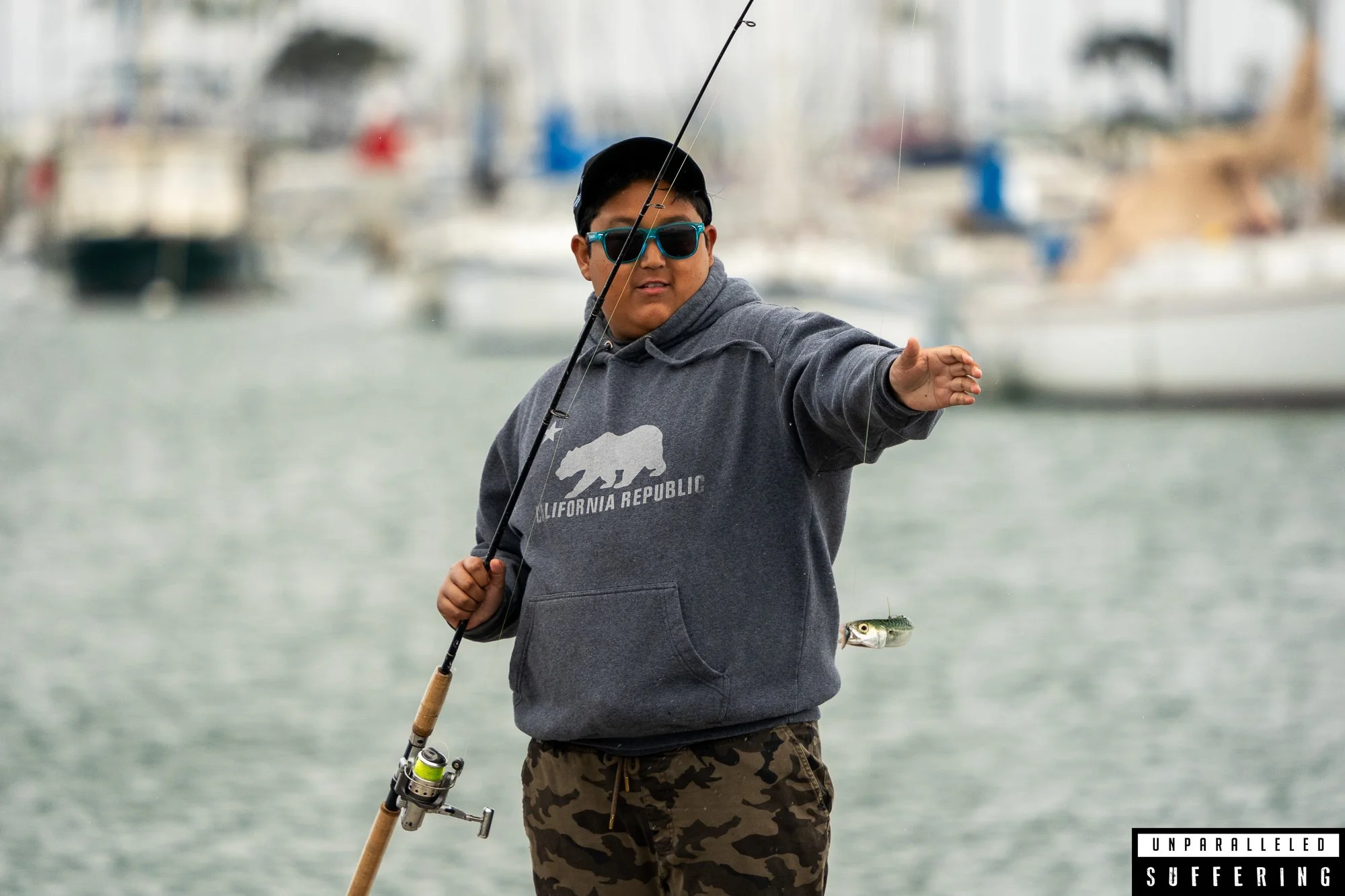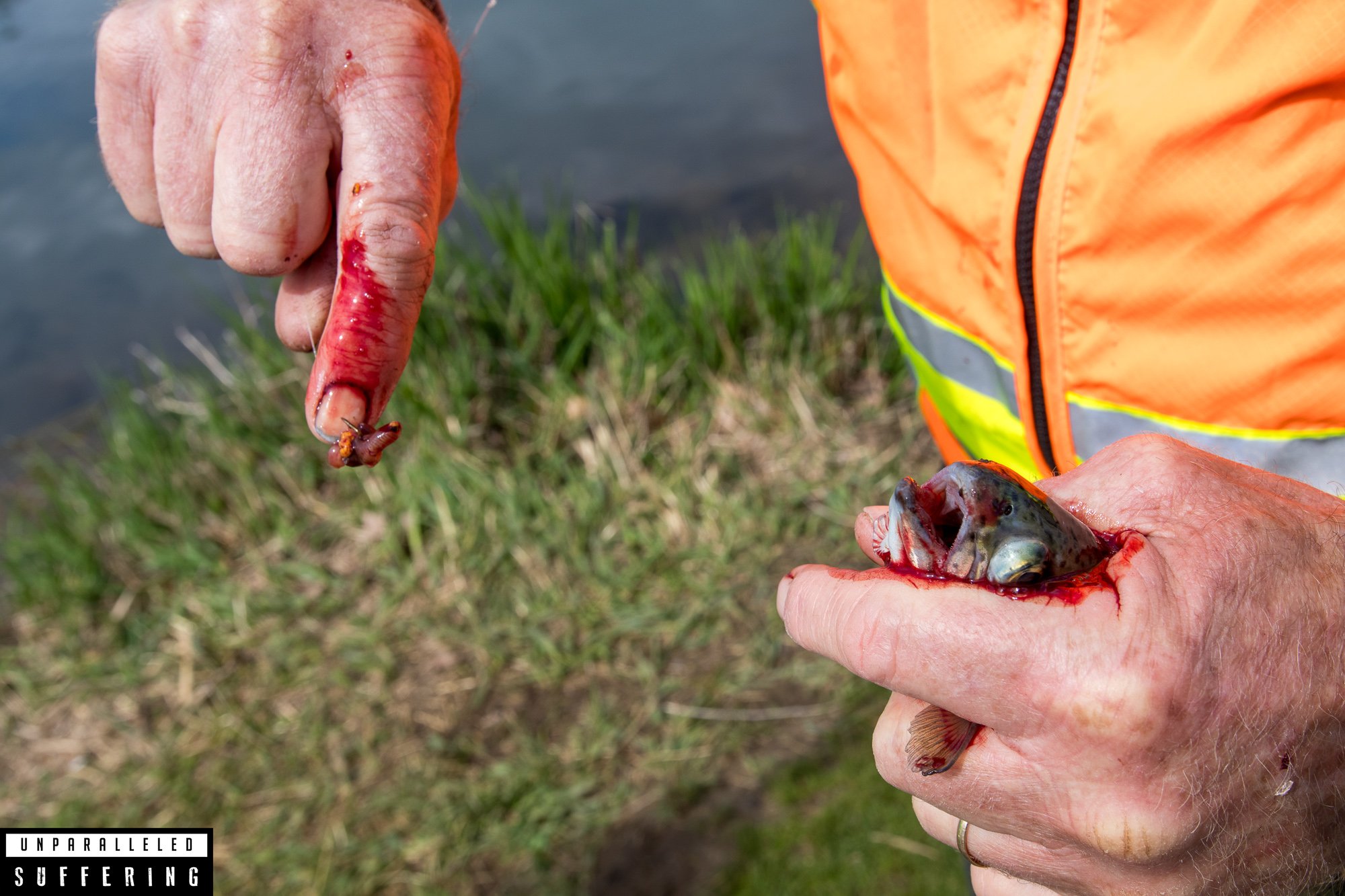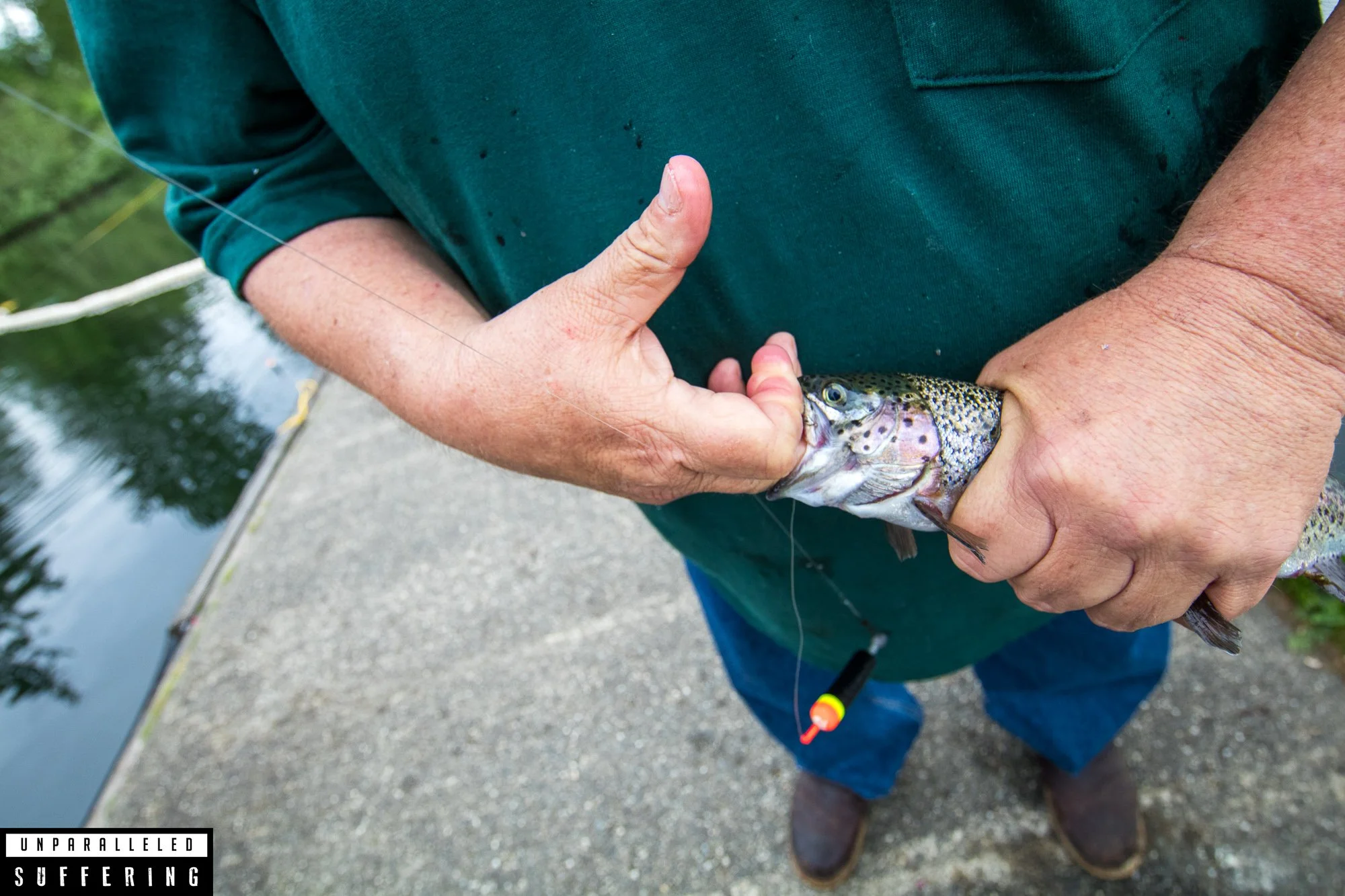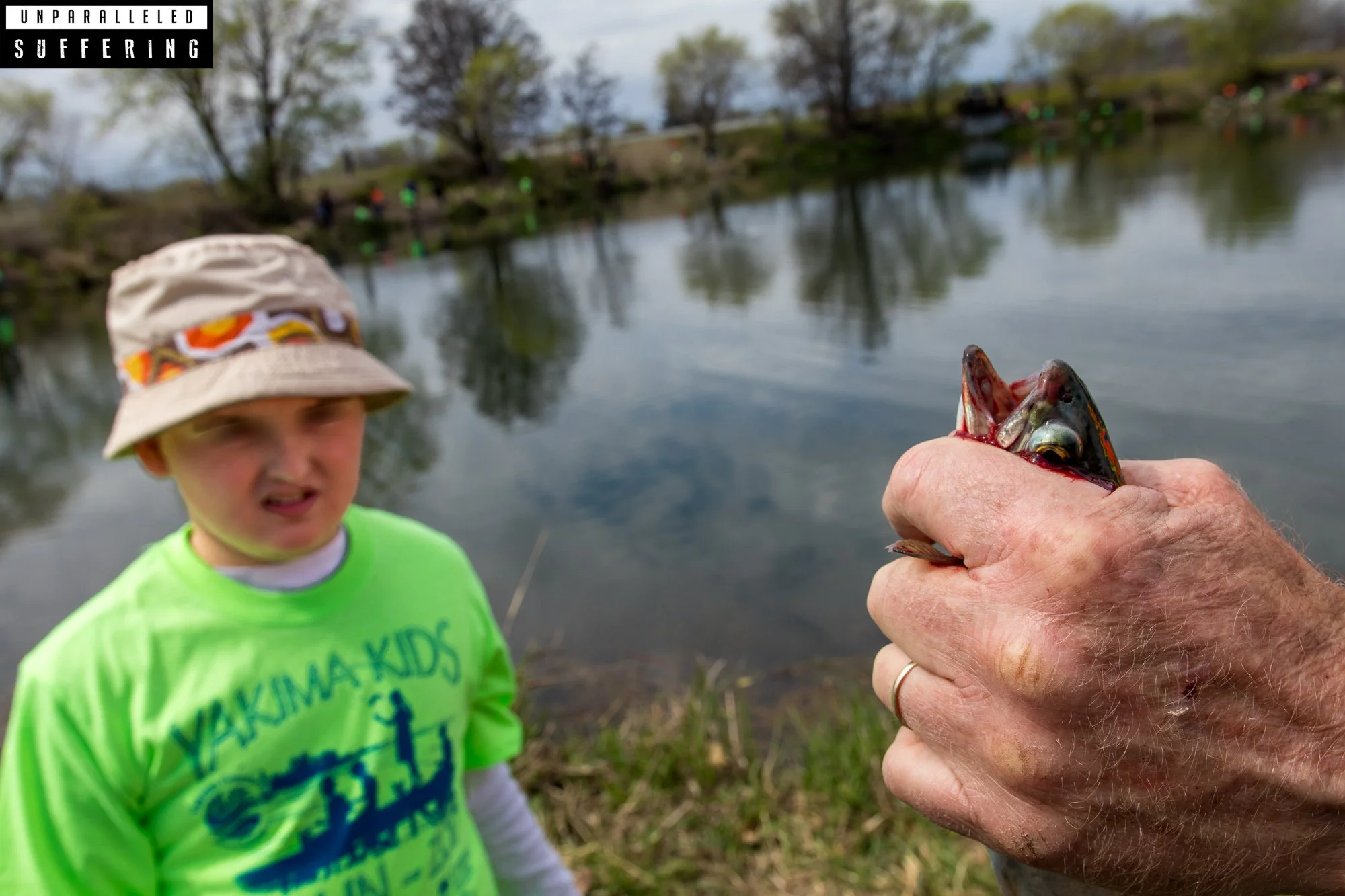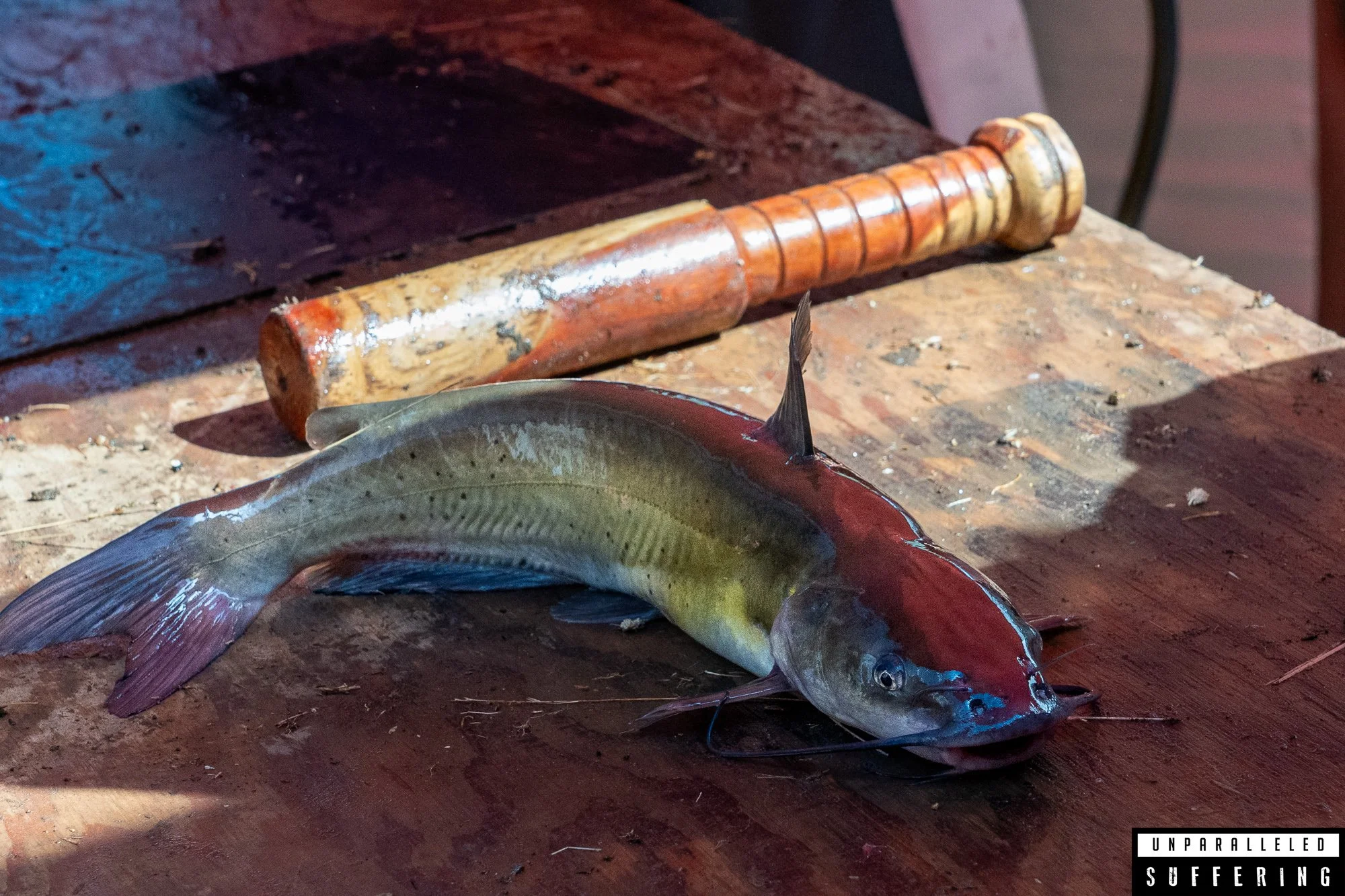Youth Fishing Derbies
Conditioning children to view killing as thrilling
From 2017-2019 Unparalleled Suffering documented 22 youth-oriented family fishing derby events along the west coast (California, Oregon, Washington). These public events are widespread throughout the United States and are held in the spring for children from the ages of approximately 2 to 14. Parents are encouraged to bring their first-time would-be “anglers” or to bring their experienced children to get them back into fishing or to maintain their interest in fishing. Most of these documented fishing derby events used rainbow trouts for their prey.
Fishes are transported from hatcheries and are densely stocked into ponds, lakes, and makeshift ponds to make them highly catchable. Children are given complementary rods, reels, bait, and plastic bags. Volunteers are staffed to help with catching, de-hooking, killing, and butchering. All fishing derbies allow at least one fish to be caught, but most allow for two or more—and some have no limit.
Fishing derbies typically last one day and participants come and go in time-based shifts. Nearly all of the fishes who are caught are used for posed pictures, usually while they are still hooked to and hanging by the line. It is common for the de-hooking process to be very lengthy and for the person removing the hook to either give up and leave it inside the fish or to pull with such force that they rip out the fish’s gill or cause other significant internal damage. By the time the fishes reach the “cleaning station” where they are cut up, gutted, and decapitated—many of the fishes are still alive and conscious, which never seems to be a concern for most of the adults. Some participants and staff opt for hitting the fishes with a tool over the head to “put them out of their misery",” but from what was documented, very few of these fishes are knocked out and most are still alive and in immense pain and stress all the way through to the final killing process.
Children are given prizes for different things such as biggest catch and heaviest fish. Some fish are eaten and others are thrown out. Some events had banners and stickers that said “Hooked On Fishing Not On Drugs,” but given that the term “fishing” is essentially a euphemism for “killing” this could be translated to “Hooked On Killing Not On Drugs.”





